BCMS 170th ANNIVERSARY ADVOCATING FOR PHYSICIANS AND PATIENTS IN OUR COMMUNITY



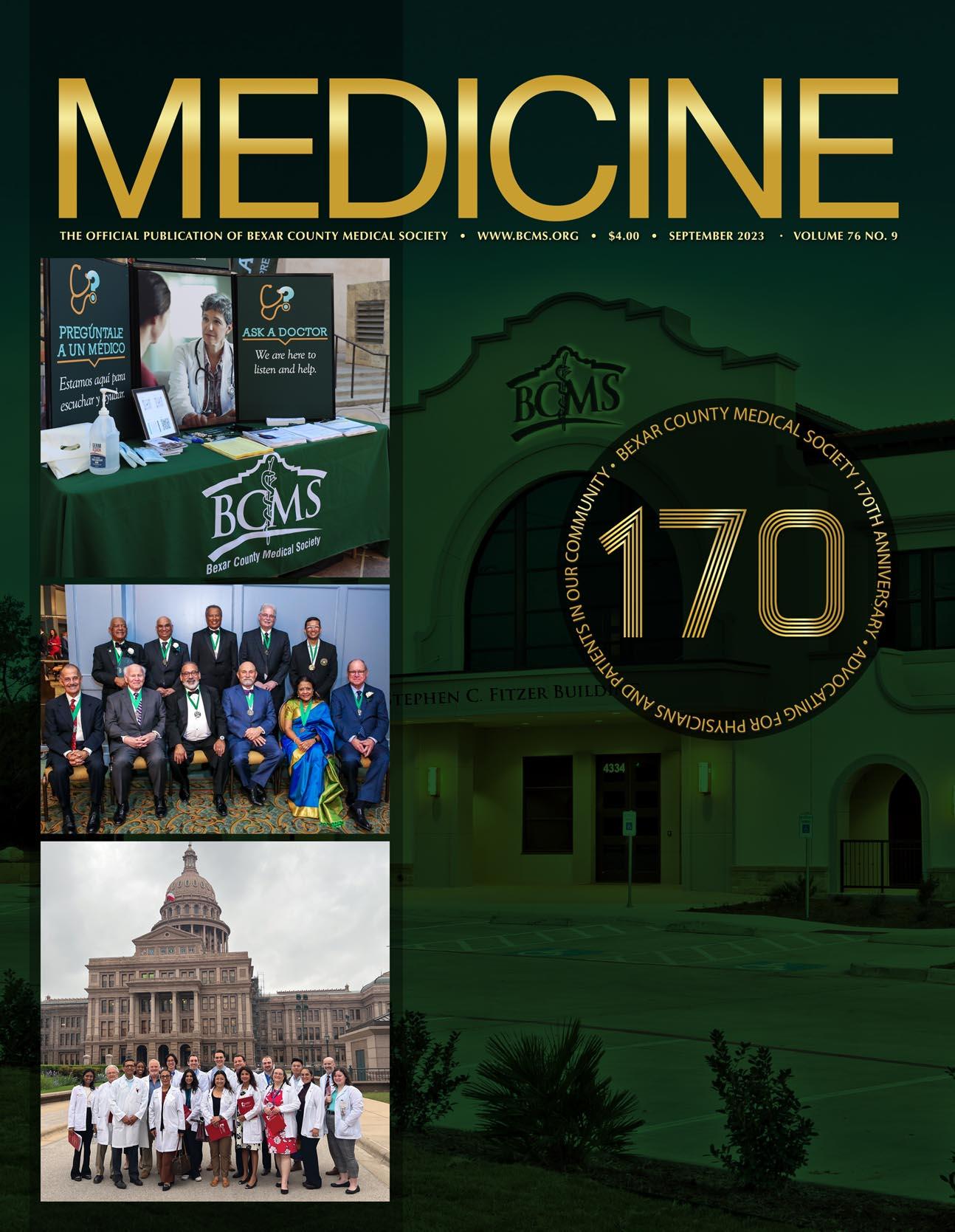
NON PROFIT ORG US POSTAGE PAID SAN ANTONIO, TX PERMIT 1001 SAN ANTONIO

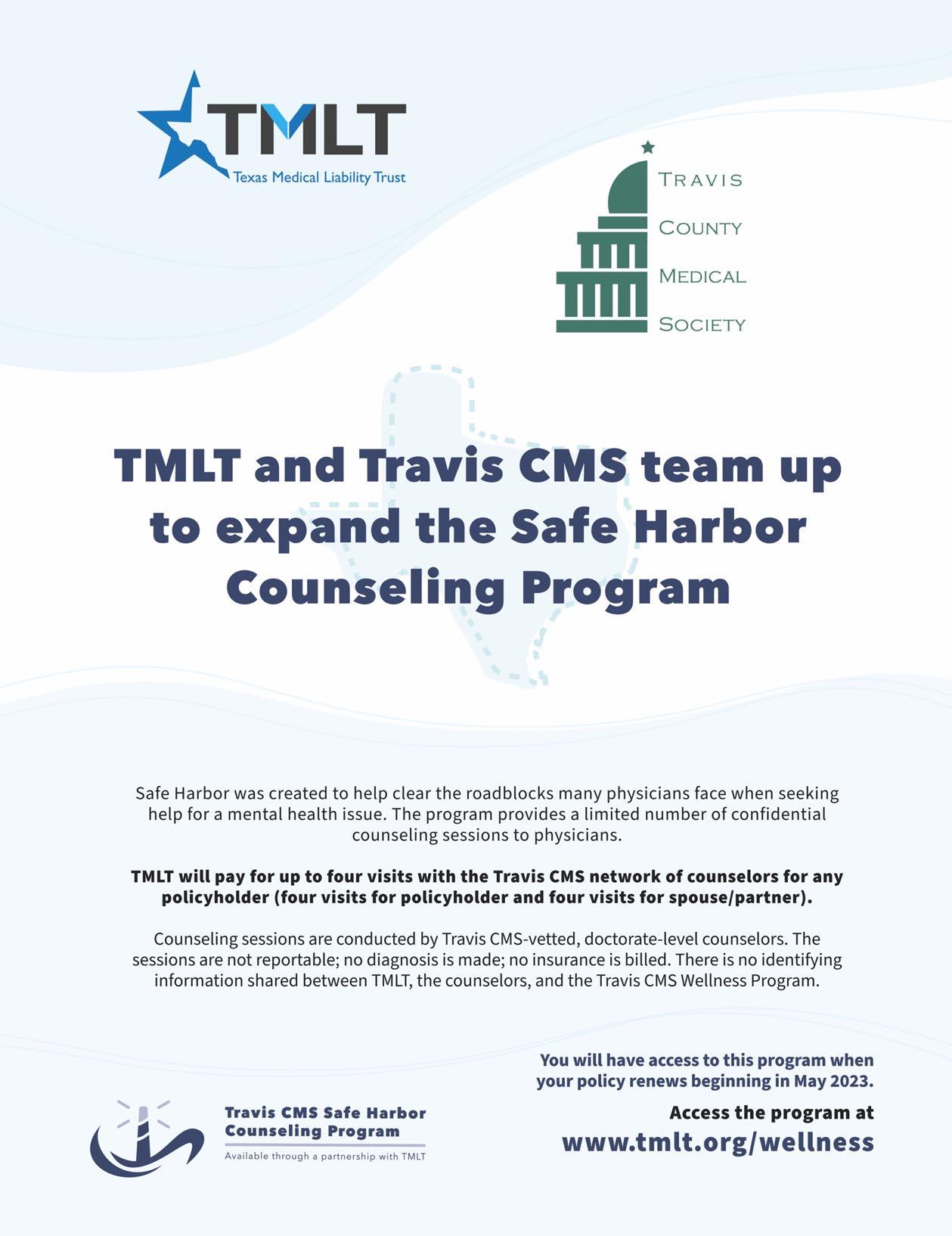
PUBLISHED BY: traveling Blender, llC. 10036 Saxet Boerne, tX 78006

PUBLISHER louis doucette louis@travelingblender.com
BUSINESS MANAGER: vicki Schroder vicki@travelingblender.com
BCMS 170TH ANNIVERSARY
San Antonio Medicine is the official publication of Bexar County Medical Society (BCMS). All expressions of opinions and statements of supposed facts are published on the authority of the writer, and cannot be regarded as expressing the views of BCMS. Advertisements do not imply sponsorship of or endorsement by BCMS
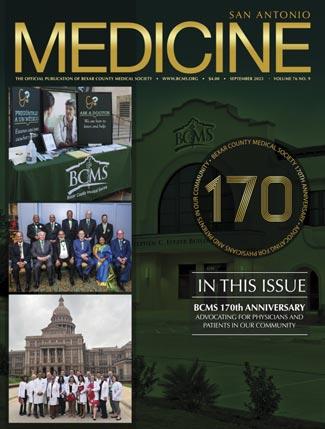
EditoriAl CorrESpondEnCE: Bexar County Medical Society 4334 n loop 1604 W, Ste. 200 San Antonio, tX 78249
Email: editor@bcms.org
MAGAZinE AddrESS CHAnGES: Call (210) 301-4391 or Email: membership@bcms.org
SuBSCription rAtES: $30 per year or $4 per individual issue
AdvErtiSinG CorrESpondEnCE: louis doucette, president traveling Blender, llC.
A publication Management Firm 10036 Saxet, Boerne, tX 78006 www.travelingblender.com
For advertising rates and information
Call (210) 410-0014
Email: louis@travelingblender.com
SAN ANTONIO MEDICINE is published by SmithPrint, Inc. (Publisher) on behalf of the Bexar County Medical Society (BCMS). Reproduction in any manner in whole or part is prohibited without the express written consent of Bexar County Medical Society. Material contained herein does not necessarily reflect the opinion of BCMS, its members, or its staff. SAN ANTONIO MEDICINE the Publisher and BCMS reserves the right to edit all material for clarity and space and assumes no responsibility for accuracy, errors or omissions. San Antonio Medicine does not knowingly accept false or misleading advertisements or editorial nor does the Publisher or BCMS assume responsibility should such advertising or editorial appear. Articles and photos are welcome and may be submitted to our office to be used subject to the discretion and review of the Publisher and BCMS. All real estate advertising is subject to the Federal Fair Housing Act of 1968, which makes it illegal to advertise “any preference limitation or discrimination based on race, color, religion, sex, handicap, familial status or national orgin, or an intention to make such preference limitation or discrimination.
ADvERTISING SALES:

AUSTIN: Sandy Weatherford sandy@travelingblender.com
SAN ANTONIO: Gerry lair gerrylair@yahoo.com
For more information on advertising in San Antonio Medicine, Call Traveling Blender at 210.410.0014 in San Antonio and 512.385.4663 in Austin.
SmithPrint, Inc. is a family-owned and operated San Antonio-based printing and publishing company that has been in business since 1995. We are specialists in turn-key operations and offer our clients a wide variety of capabilities to ensure their projects are printed and delivered on schedule while consistently exceeding their quality expectations. We bring this work ethic and commitment to customers along with our personal service and attention to our clients’ printing and marketing needs to San Antonio Medicine magazine with each issue.

SAN ANTONIO 4 SAN ANTONIO MEDICINE • September 2023
OF CONTENTS
TABLE
Copyright © 2023 Smithprint, inc. prin tE d in tHE u SA
THE OFFICIAL PUBLICATION OF THE BEXAR COUNTY MEDICAL SOCIETY • WWW.BCMS.ORG • $4.00 • SEPTEMBER 2023 • VOLUME 76 NO.9
Advocating for Physicians, Patients and Our Community Since 1853 By Melody Newsom, Chief Executive Officer 12 170 Years of BCMS Milestones and Medical Breakthroughs 14 A History Lesson – Looking Back By Daniel Tamez, MD 18 BCMS Recollections: Dr. Jaime Pankowsky By Andrew Ta 20 UIWSOM: Past, Present and Future By UIW Office of Communications 21 UT Health San Antonio: Meeting The Growing Needs Of South Texas By Robert Leverence, MD, FACP 22 170 Years of Organized Medicine and Legislative Advocacy in San Antonio, Part 1 By Mary E. Nava, MBA 24 The BCMS Membership – Serving Bexar County Patients By Brissa G. Vela 27 The BCMS Circle of Friends Program 1994 to 2023 By August Trevino 28 The BCMS Auto Program – Celebrating 40 Years By Phil Hornbeak 30 BCMS President’s Message 8 BCMS Alliance Message 10 Searching for “Texas” By Oliver Johnson, Jr., MD 31 Healing the Healers: Lessons Learned from a Physician Leadership and Wellness Coach By Nora Vasquez, MD 32 National Suicide Prevention – Partnering Organizations Resources By Monica Jones, BCMS COO 34 University Health Women’s and Children’s Hospital: Meeting The Unique Needs of Women, Newborns and Children By Elizabeth Allen, Director of External Communications, University Health 36 BCMS Events: Hard Rock Mixer 38 BCMS Vendor Directory 40 Auto Review: What To Buy By Stephen Schutz, MD 44 Recommended Auto Dealers 46
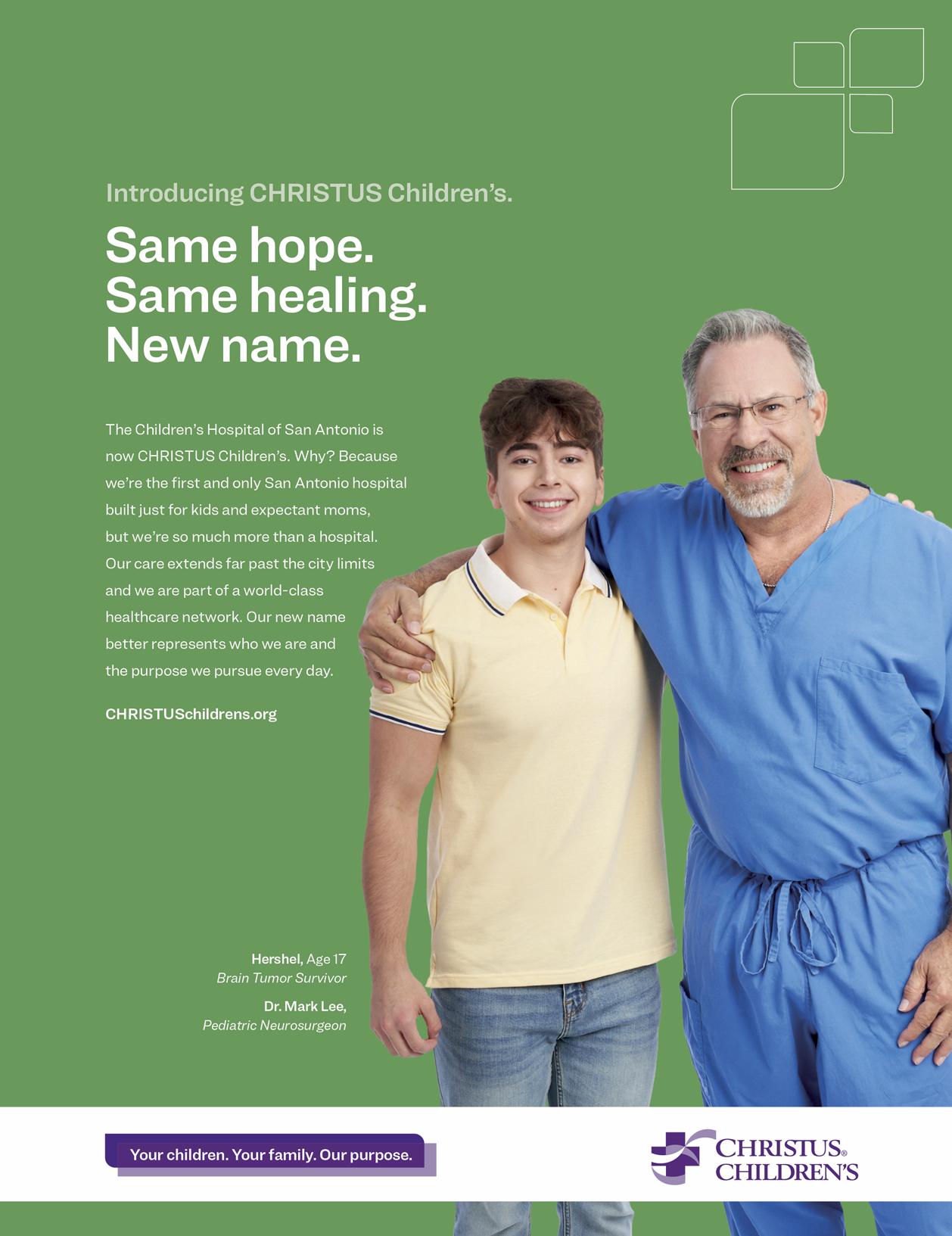
ELECTED OFFICERS
John Joseph nava, Md, President
Brian t. Boies, Md, Vice President
Ezequiel “Zeke” Silva iii, Md, President-elect
John Shepherd, Md, Secretary
rajeev Suri, Md, Treasurer and Immediate Past President
DIRECTORS
Woodson "Scott" Jones, Md, Member
Sumeru “Sam” G. Mehta, Md, Member
M. “Hamed” reza Mizani, Md, Member
priti Mody-Bailey, Md, Member
lubna naeem, Md, Member
lyssa n ochoa, Md, Member
Jennifer r rushton, Md, Member
raul Santoscoy, do, Member
lauren tarbox, Md, Member
Jenny Case, Alliance Representative
ramon S. Cancino, Md, Medical School Representative
lori Kels, Md, Medical School Representative
robert leverence, Md, Medical School Representative
Keiko McManus, Md, Board of Ethics Chair
John pham, do, Medical School Representative
Cheryl pierce-Szender, Alliance Representative
ronald rodriguez, Md, phd, Medical School Representative
Col. Cecilia Kai Sessions-Carpenter Md, MpH, Military Representative
George F. “rick” Evans, Jr., General Counsel
Jayesh B. Shah, Md, TMA Board of Trustees
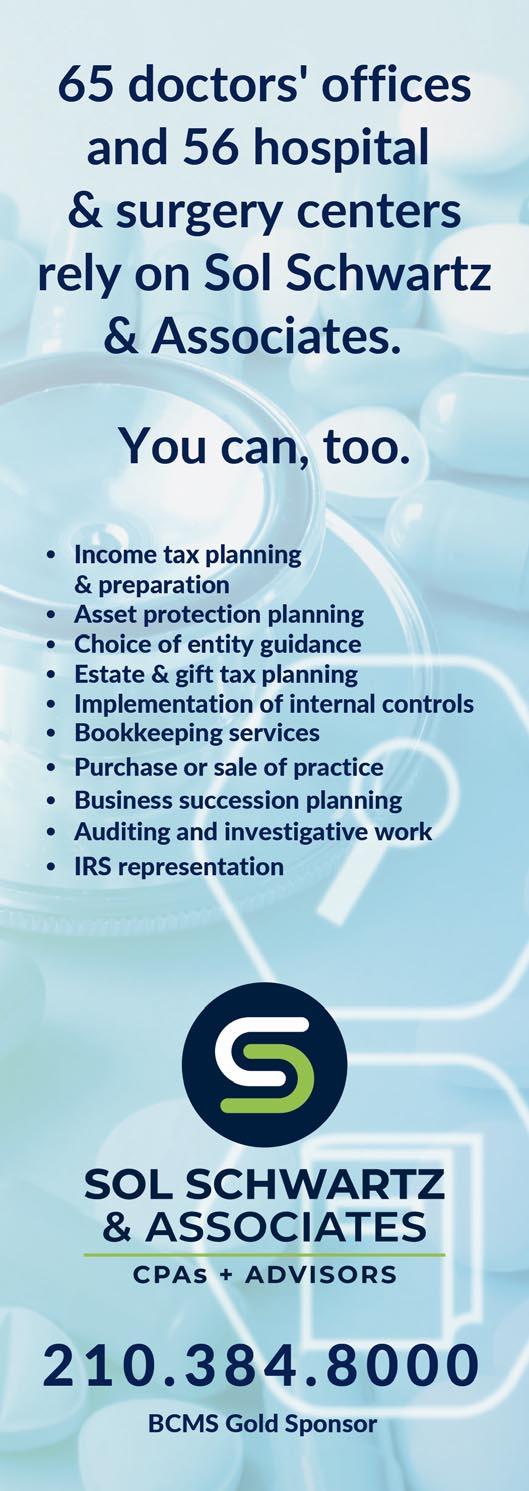
Melody newsom, CEO/Executive Director
BCMS SENIOR STAFF
Melody newsom, CEO/Executive Director
Monica Jones, Chief Operating Officer
Yvonne nino, Controller
Mary nava, Chief Government Affairs Officer
Brissa vela, Membership Director
phil Hornbeak, Auto Program Director
August trevino, Development Director
Betty Fernandez, BCVI Director
Al ortiz, Chief Information Officer
PUBLICATIONS COMMITTEE
norys Alexandra Castro-pena, Md, Co-chair
John Joseph Seidenfeld, Md, Co-chair
louis doucette, Consultant
david Schulz, Community Member
Elizabeth Clanton, Md, Member
Kristy Yvonne Kosub, Md, Member
neal Meritz, Md, Member
Jaime pankowsky, Md, Member
Alan preston, phd, Member
rajam S. ramamurthy, Md, Member
Adam v. ratner, Md, Member
Faraz Yousefian, do, Member
Moses Alfaro, Student Member
victoria Ayodele, Student Member
tue Felix nguyen, Student Member
niva Shrestha, Student Member
Bethanne Bradshaw, Student Member
Andrew ta, Student Member
Monica Jones, BCMS Coo, Staff Liason
trisha doucette, Editor
6 SAN ANTONIO MEDICINE • September 2023
BCMS BOARD OF DIRECTORS

How Civilized Are We in 2023?
By John J. Nava, MD, 2023 BCMS President
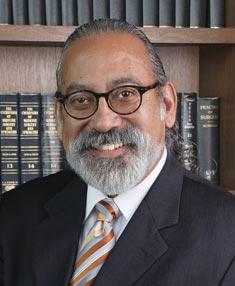
Years ago, anthropologist Margaret Mead was asked by a student what she considered to be the first sign of civilization in a culture. The student expected Mead to talk about fishhooks or clay pots or grinding stones.
But no. Mead said that the first sign of civilization in an ancient culture was a femur that had been broken and then healed. Mead explained that in the animal kingdom, if you break your leg, you die. You cannot run from danger, get to the river for a drink or hunt for food. You are meat for prowling beasts. No animal survives a broken leg long enough for the bone to heal.
A broken femur that has healed is evidence that someone has taken time to stay with the one who fell, has bound up the wound, has carried the person to safety, and has tended the person through recovery. Helping someone else through difficulty is where civilization starts, Mead said.
Ricardo Nuila is the son of an OB/GYN physician who immigrated to the United States from El Salvador. He followed in his father's footsteps to the medical profession, studied at Baylor College of Medicine (BCM) in Houston, and trained at Ben Taub Hospital, perhaps the most effective and efficient safety net hospital in the country. He is an associate professor of Medicine, Medical Ethics and Health Policy at BCM, where he directs the Humanities Expression and Arts Lab (HEAL) program. He has written a book chronicling the circumstances and factors that led to the growth of Harris Health to include Ben Taub and Jefferson Davis Hospital, the sister institution that provided obstetric care to the citizens of Harris County. Another member of the BCMS Board of Directors initially told me about this book, The People's Hospital - Hope and Peril in American Medicine. Both she and I are graduates of BCM, and I recall spending many hours roaming through the halls of both of those hospitals during clinical clerkships. Reading the book took me back to those years, recalling both the ups and downs of my undergraduate years. I was curious to hear his take on American healthcare.
Dr. Nuila has used the stories of some of the patients he has treated to illustrate what is possible when the healthcare industrial complex refocuses its attention back on people and away from costs. This book is easy to read, and Dr. Nuila is a good storyteller. He is historically accurate and has done a great job in selecting patients to illustrate his points. Admittedly, the patients’ experiences are specific to Houston
and Harris County, but I suspect their experiences can be generalized to many other large cities in the U.S., and maybe even some rural areas of America. He makes a distinction between healthcare access, health insurance coverage and the actual practice of medicine, discussing how they may have been more closely aligned in the past but have diverged over a generation. In making his arguments, he has tapped into the dissatisfaction many physicians are experiencing as we question whether the system in which we practice is really helping our patients as much as it could. This may be one of the reasons for physician burnout, the increasing incidence of mental health issues, and the rising suicide risk among physicians and other first responders. Your BCMS has established the Physician Wellness Committee, and the message of the book resonated with the goals and activities of this group.
Healthcare delivery in our country is contrasted with other countries where universal healthcare is the norm. He labels our U.S. system as “Medicine, Inc.,” and describes the five basic assumptions that define American healthcare. He references the writings of Paul Starr in The Social Transformation of American Medicine, that “the doctors escaped becoming victims of capitalism and became small capitalists instead.” (Page 47.)
The author raises basic questions regarding fairness of the entire system and worthiness of healthcare recipients. “One of the most prominent features of Medicine, Inc. is that it is divisive. If healthcare became corporate in the 1980s, then it has been subsumed by politics in the 2000s.” (Page 113.) He questions the transactional nature of American healthcare, where market forces have made it possible for the healing interaction, we call medicine, to be reduced to digital datasets that allow the activity to be coded and billed for the maximal payment. We could expect that somewhere along the way, the effectiveness of our interactions with our patients would be scrutinized, but it seems that part may not be what everyone is focused on. This has led to an industry where costs are continuing to rise while in some cases, quality outcomes are moving in the opposite direction.
In one of the last chapters entitled, “Tiers,” the doctor takes us on a historical journey, back to 550 AD in the Middle East, where there existed Jundi Shapur, a great medical university with faculty and students from all over Eurasia. “This new type of building opened its doors to everyone. There were no tiers. People didn't even have to pay.” (Page 288.) What a concept!
8 SAN ANTONIO MEDICINE • September 2023 PRESIDENT’S MESSAGE
“This is the dream: science applied impartially to illness. Disease an alyzed and cured without the interference of money or a higher author ity. Equality.” (Page 288.) “The academic model is in Ben Taub’s DNA.” (Page 287.) Despite this historical ideal, the concept of worthiness still comes up.
“What kind of care did these people deserve?
It depended on who you asked. One camp believed these patients were only entitled to receive emergency care at Ben Taub. This camp believed that while the federal law EMTALA still applied, any fur ther care given to these patients—including clinic visits and preven tive care — constituted misuse of public dollars, since those dollars were going to help people who had entered the country illegally. This camp was comprised not only of doctors but also politicians. Then-Texas Attorney General and now-U.S. senator John Cornyn became a leading voice for this group in 2001 when, writing in the Houston Chronicle, he opined that any non-emergent care provided to undocumented immigrants violated federal law.
Ben Taub had long provided one standard of healthcare to all its patients. But the number of undocumented patients, and the question of how much providing them with a standard level of care might cost, had led to the creation of a lower tier and a lower standard. Those patients who qualified for Medicare or the Gold Card received a certain standard of healthcare, while the undocumented received the lower one.” (Page 290.)
Many needy people live in the U.S. Some of them are undocumented immigrants. It is clear that in cases of infectious diseases that represent public health threats, it is in society’s best interest to contain contagious illnesses such as tuber culosis and malaria, two easily treated conditions with higher prevalence in certain parts of the world. Beyond public health threats, it is less clear which patients deserve moving up in the waiting line for medical evaluation. Our military veterans frequently have to wait for medical assessments for acute and chronic health problems and disability determination. These are citizens who have sacrificed in service to their nation, and to all the rest of us. Shouldn’t they get a gold ticket to advance? Why do they even require a ticket — they have already paid the price of entry. I would be interested to poll that group, many of whom come from immigrant families, to clarify their opinions on which persons living in the U.S. deserve assistance. Frankly, I give service members’ opinions higher weight than others who have never served.
You may be wondering why I prefaced this letter with the anecdote about Margaret Mead in this issue celebrating the 170th Anniversary of the establishment of BCMS. I wonder what an anthropologist from 170 years in the future will observe about the healthcare system
of today and whether we were able to answer the difficult question, “Who deserves what?” All I know today is that the effort has to start somewhere, and with someone, even if it is small and symbolic. Let’s hope more people will rise to the occasion, saying, “Let me be one of the early adopters of the change I want to see in this world.”
Look for a review of The People’s Hospital – Hope and Peril in American Medicine in the October issue of San Antonio Medicine magazine.
John J. Nava, MD, is the 2023 President of the Bexar County Medical Society. He is interested in Primary Care, Clinical Research and Public Health.
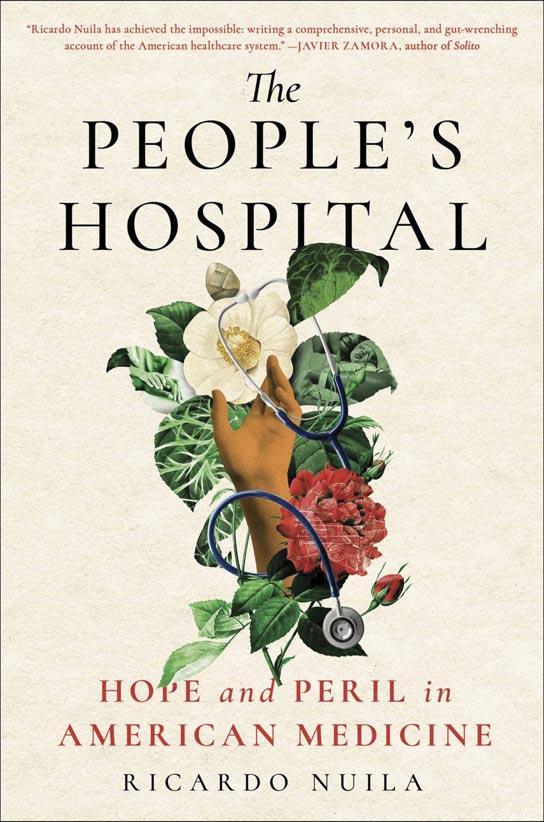
PRESIDENT’S MESSAGE
Visit us at www.bcms.org 9
What Does BCMSA Do for You?
By Tatiana Sweeney and Jenny Case, MSN, MBA, RN


Founded on October 29, 1917 at the Menger Hotel in downtown San Antonio, the Bexar County Medical Society Alliance (BCMSA) was organized “to create fellowship among the families of physicians and to foster activities in benevolent, philanthropic, charitable and patriotic endeavors.” While we started 100 years ago making supplies for the Red Cross to support American soldiers during World War I, we remain committed to serving our community a century later.
The BCMSA has grown as an organization since 1917. Our membership consists of physician spouses with various skills and passions who are dedicated to their families and to supporting their spouse’s rigorous schedules. Many take on extra roles in the household in addition to their own careers. This balancing act is challenging and time consuming. A life in medicine is unique and while fulfilling, can also be isolating. Physician spouses now, more than ever, need a way to connect to one another and create a support system. Having a support system of individuals that can empathize with these challenges is imperative for the success of the medical community, which in turn sets the physician up for success in the workplace.
While the BCMSA provides a community for member support, it also plays a crucial role in the healthcare landscape by supporting physicians, promoting community health, and advocating for important healthcare issues. It recognizes the importance of preventive care and health education, working tirelessly to raise awareness about various health issues and promote healthier lifestyles. By organizing health fairs, educational programs and outreach activities, the BCMSA aims to empower individuals and communities to make informed decisions regarding their well-being. Such efforts contribute to reducing health disparities and improving overall community health outcomes.
The BCMSA serves as a platform for advocacy on critical healthcare issues. The organization collaborates with policymakers, healthcare institutions and other stakeholders to champion policies that prioritize patient care, physician well-being and access to quality healthcare services. Through its advocacy efforts, the BCMSA works to shape healthcare policies that align with the needs and interests of both physicians and patients, ultimately aiming to improve the healthcare system as a whole.
It also plays a pivotal role in supporting medical education and scholarships. Recognizing the importance of continued learning and professional development, the BCMSA offers scholarships and grants to medical students, residents and fellows. These financial aids help aspiring physicians pursue their educational goals and alleviate some of the financial burdens associated with medical training. In 2017, BCMSA celebrated their Centennial Celebration and partnered with the Bexar County Medical Society Foundation, CHRISTUS Santa Rosa Health System and Neiman Marcus, as well as community members and leaders, to provide scholarship funds for well-deserving students pursuing careers in the allied health. Our scholarships are a long-standing tradition and we most recently presented six Allied Health Scholarships and two inaugural Medical Student Scholarships to deserving area students. By investing in the next generation of healthcare professionals, the BCMSA contributes to the overall quality of healthcare delivery in the community.
Moreover, the BCMSA actively engages in philanthropic activities, focusing on initiatives that benefit underserved populations and vulnerable communities. By partnering with local organizations and charities, it extends its impact beyond the medical field, addressing social determinants of health and working towards a more equitable society. These charitable efforts exemplify the BCMSA’s commitment to serving the broader community and making a positive difference in people's lives. This year, our philanthropic endeavors have included partnering with The Children’s Bereavement Center as a potluck partner to help serve meals to patients receiving services. Our local chapter also partnered with the TMAA in the Texas book share program, which distributed books on healthy living topics to the Children's Hospital of San Antonio.
The world of medicine has been rocked for the last four years with the global pandemic. One of the biggest take-aways as an organization is that we can overcome and accomplish anything together. The BCMS and the Alliance are the perfect avenues to keep these long-standing communities thriving, and we look forward to continuing what was started in 1917 and step up in any way that is needed.
10 SAN ANTONIO MEDICINE • September 2023 BCMS ALLIANCE
Tatiana Sweeney is the VP of Community Outreach of the BCMS Alliance.
Jenny Case, MSN, MBA, RN, is the 2023 Co-President of the BCMS Alliance.
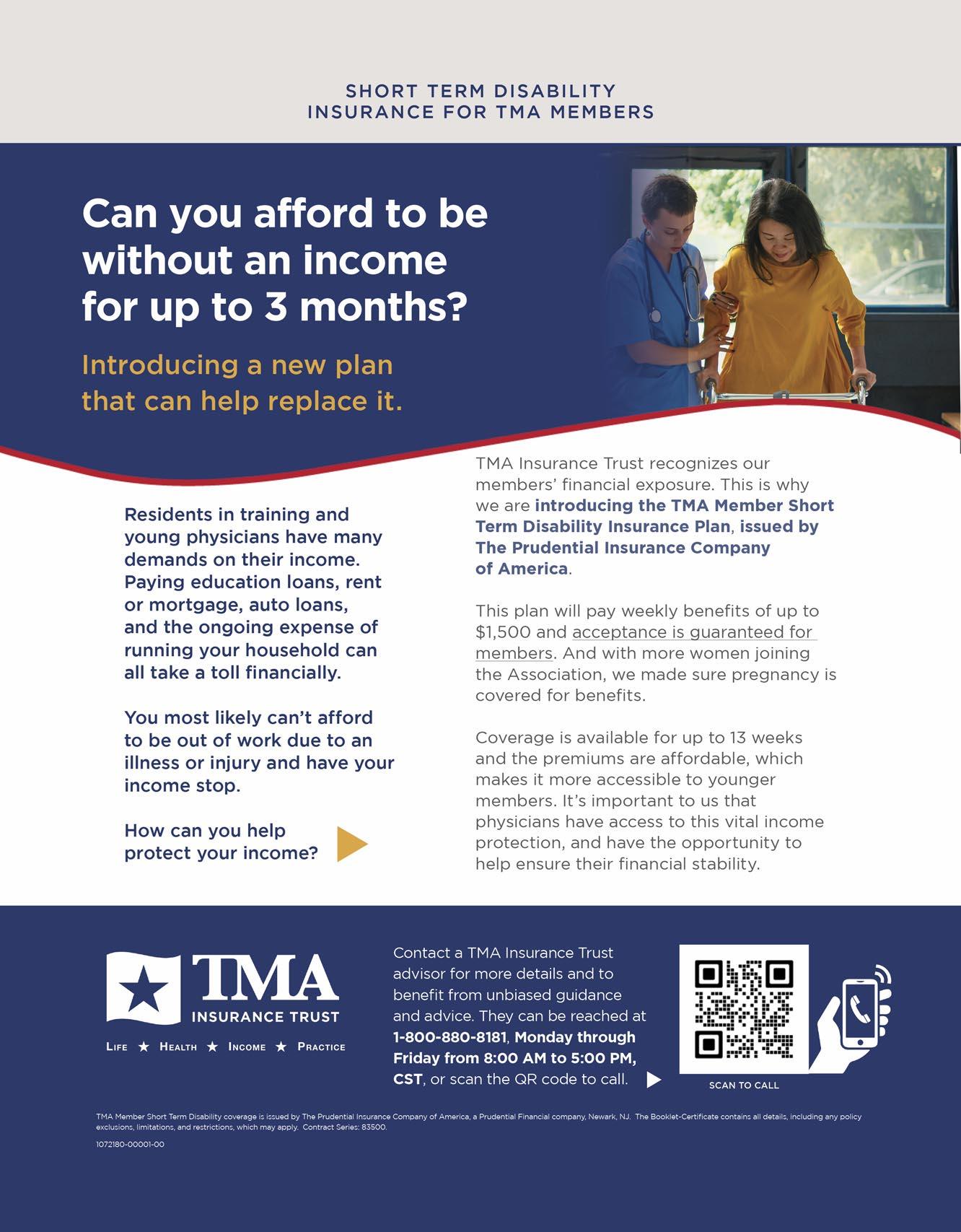
Advocating for Physicians, Patients and Our Community Since 1853
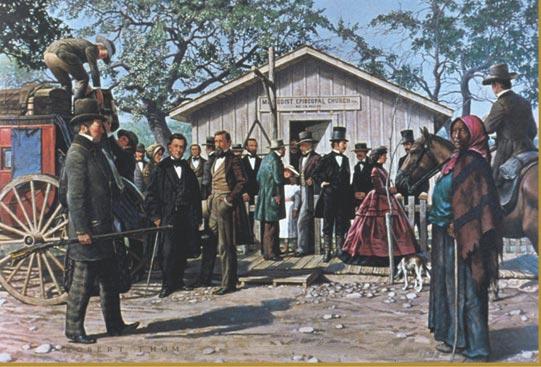 By Melody Newsom, Chief Executive Officer
By Melody Newsom, Chief Executive Officer
BCMS
was founded September 22, 1853, 170 years ago; what visionaries we have been blessed to have in the San Antonio medical community! BCMS is the oldest county medical society in Texas, founded the same year as the Texas Medical Association.
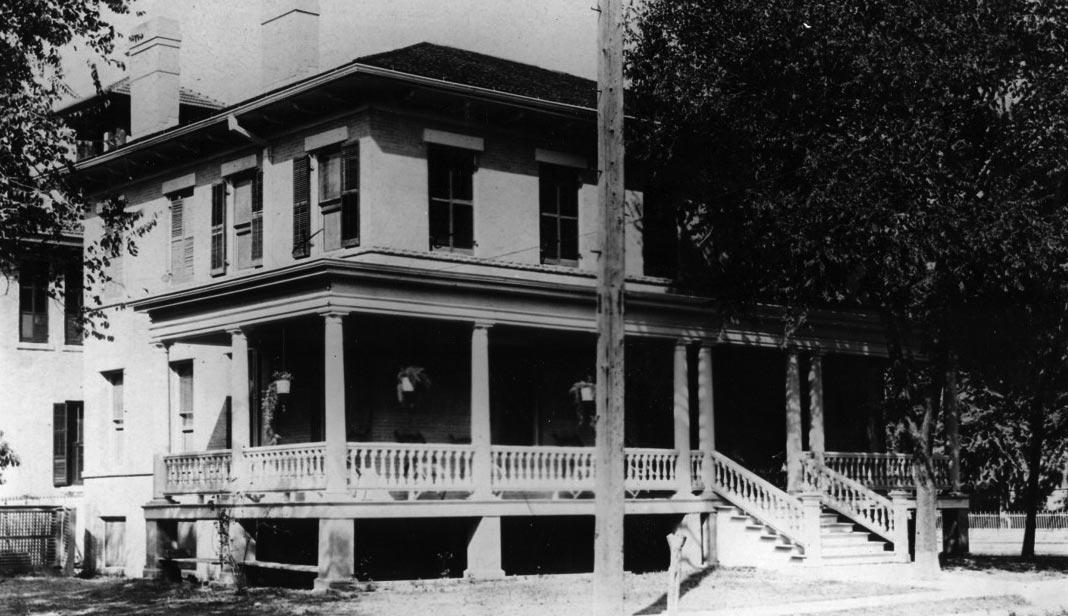
I’ve had the pleasure of working at BCMS for a quarter of a century of the 170 years! Since I started with BCMS in October 1999, the physician members have continued to have an impact on our community and the honored practice of medicine. No matter the event, the physicians and medical community step up and pull together for the greater good.
In my 25 years here, we’ve had the Y2K computer scare, the attacks of 9/11, and hurricanes Katrina, Ike and others where the BCMS physicians pulled together to assist in setting up medical stations to provide care in makeshift mega shelters. In response to 9/11, BCMS and the Southwest Texas Regional Advisory Council (STRAC) developed a Unified ID Badge for all the hospital systems to use in the event of a disaster. As a result of the hurricanes, it was obvious that the community needed a consolidated place for incident command,
and the Emergency Operations Center was built in 2007 and provides San Antonio with a state-of-the-art command center that houses all branches of emergency operations, including the Regional Medical Operations Center (RMOC), which BCMS has a seat with, and Web EOC was developed so the hospitals and Emergency Medical Services
12 SAN ANTONIO MEDICINE • September 2023 BCMS 170TH ANNIVERSARY
The founding of the Texas Medical Association in February 1853
BCMS purchased its first building in 1920, located at the corner of North St. Mary's and Lexington.
can talk and know where patients can be transferred to. The BCMS Emergency Preparedness Committee had worked to create detailed information on physician office preparation for pandemic flu, long before the coronavirus pandemic (COVID-19), and a variety of terrorist scenarios that also could occur in Bexar County. We even held a fullscale Active Shooter Exercise in March 2019 at the BCMS building.
When COVID-19 hit, BCMS, with the help of some dedicated medical students, became the hub for personal protective equipment (PPE) donations and distribution. Over 7.5 million pieces of PPE were distributed to medical practices, other community non-profit organizations and even Namibia, Africa, over the first two years of the pandemic. Vaccination clinics were held at BCMS to vaccinate the medical professionals in the community when the vaccine was almost impossible to get unless you worked in the hospital.
Physician members volunteer at health fairs with the BCMS ‘Ask a Doctor’ booth, educating the public about diabetes, the importance of childhood and COVID-19 vaccinations, reducing the consumption of sugar-sweetened beverages, personal disaster preparedness, etc.
The physician members are the number one patient advocates and

educators, and help guide legislation for the health and safety of our community. After several attempts, they got fluoride in the San Antonio water system passed by voters in November 2000. They were instrumental in the Tort Reform legislation in 2003, making Texas a much better place to practice medicine. The physicians lobbied and educated their patients and Texas voters in 2007 on the importance of Proposition 15, which dedicated $3 billion over ten years towards the fight against cancer and created the Cancer Prevention and Research Institute of Texas. Physicians were instrumental in getting Tobacco 21 passed in San Antonio, which raised the minimum legal age to purchase tobacco products from 18 to 21 in 2018. This later became a state law in 2019.
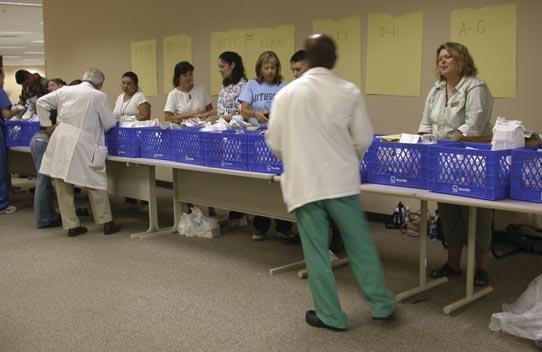
Recently, our physician leaders have been instrumental in working with TMA to build on the success of the 2021 Gold Carding legislation, which resulted in TMA further advancing prior authorization reform legislation for vulnerable patients earlier this year during the 2023 legislative session.
There is so much I have also been a witness to and participant in. The controversy of the sale and move from the building at 202 W. French Place after 71 years on that property, an 11-year hiatus leasing at 6243 West I-10, to building the Bexar County Medical Society’s beautiful permanent home at 4334 N. Loop 1604 West, which won the American Subcontractors Project of The Year in 2016. This building is built to last 100+ years and was renamed the Bexar County Medical Society Stephen C. Fitzer building in 2022 in honor of our last executive director, without whom we would not have this beautiful building!
The honor of working at BCMS is also reflected in the quality and longevity of the staff. Almost 50 percent of the employees have worked at BCMS for 10 years or longer, and five have been at BCMS for almost 25 years or more.
What an amazing, rich history with many more successes to come in the future! I am blessed to be the CEO/Executive Director and to work with so many amazing physicians and a wonderful staff!
To read about the first 150 years, visit the BCMS website and click on About Us, History & Services, 150th Anniversary of Bexar County Medical Society.
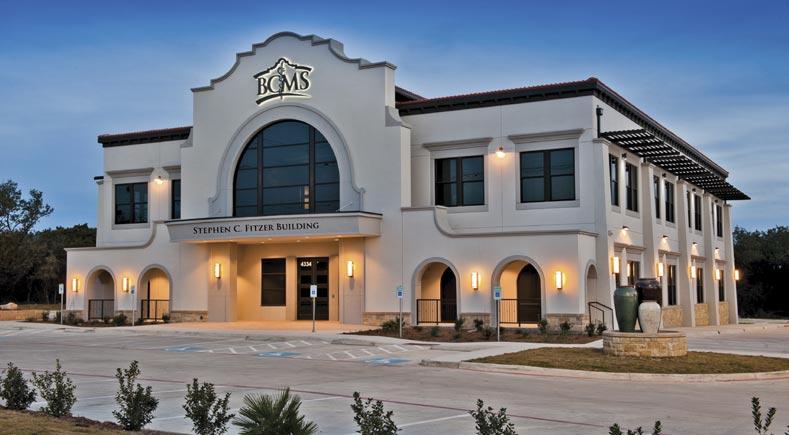
Visit us at www.bcms.org 13 BCMS 170TH ANNIVERSARY
Melody Newsom is the CEO/Executive Director for the Bexar County Medical Society. She has been with the Society for 25 years.
Physicians and volunteers at a San Antonio shelter following Hurricane Katrina in 2005.
1853
170 Years of BCMS Milestones
1915
BCMS founded Texas Medical Association (TMA) founded in February

1870
Louis Pasteur establishes the germ theory of disease
1885
First vaccine for rabies by Louis Pasteur and

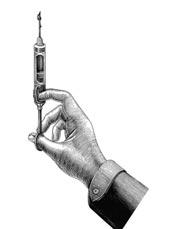

1890
First rubber gloves introduced in surgery
First vaccine for tetanus
1873
Dr. Josephine Kinglsey becomes the first woman physician in San Antonio
1897
1882
Robert Koch discovers tuberculosis bacterium
1879
First vaccine for cholera
1895
1896
21,064 smallpox cases are reported in the U.S. and 894 patients died
1901
1900 Texas State Board of Medical Examiners established
Alois Alzheimer identifies the first case of what becomes known as Alzheimer’s disease
Karl Landsteiner discovers the existence of different human blood types
1911
BCMS helps establish Texas' first sanatorium for the treatment of tuberculosis
The Bulletin, first BCMS publication launches
BCMS and BCMS Library Association move to the Bedell Building
First vaccine for bubonic plague
First vaccine for typhoid fever
1909
Texas State Board of Health (Texas Department of State Health Services) established

1903
Wilhelm Conrad Röntgen discovers medical use of X-rays in medical imaging
Bexar County Medical Society name adopted after realignment with AMA
Electrocardiograph machine developed by Dutch physician Wilem Einthoven
1912
Bexar County Medical Library Association is established
The Bexar County Tuberculosis Sanatorium opens in San Antonio
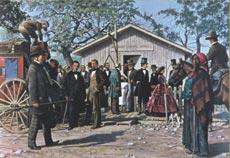
1916
Margaret Sanger opens first birth control clinic
1913
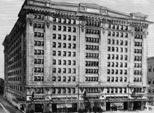
Legislation passes to establish county hospitals
1914
Tetanus vaccine introduced
14 SAN ANTONIO MEDICINE • September 2023 BCMS 170TH ANNIVERSARY
Émile Roux
and Medical Breakthroughs
1933
1951
1922
Dr. Frank Paschal named first life member of BCMS
107,473 cases of pertussis were reported in the U.S. and 5,099 patients died
1926
BCMS votes to purchase the Bedell Moore property
First closed chest defibrillator is developed along with the cardiac massage technique known as CPR
1917
Pertussis vaccine is developed
Bexar County Medical Society
Auxiliary is formed Bexar County Medical Society membership at 163
1934
An average of 16,316 polio cases and 1,879 deaths were reported each year from 1951-1954
First artificial heart valve is developed with successful implantation the next year
1953
1959
University of Texas Health Science Center at San Antonio is founded
BCMS celebrates 100 years
Plastic blood bag is invented
First successful open-heart bypass surgery is performed in Philadelphia by Dr. John Gibbon
1923
Diptheria vaccine is developed
1921
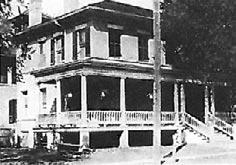
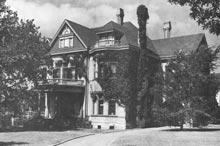
Frederick Banting and Charles Best discover insulin – important for the treatment of diabetes
1920
BCMS purchases first building
469,924 cases of measles were reported in the U.S. and 7,575 patients died
147,991 cases of diphtheria were reported in the U.S. and 13,170 patients died
The 19th Amendment is ratified giving women the right to vote
1928
Penicillin is discovered by Alexander Fleming
Dr. Donald Atkinson of San Antonio publishes "External Diseases of the Eye," a seminal work in the field of ophthalmology
1948
BCMS membership at 414
1937
Congress establishes the National Institute of Cancer at the behest of Dr. Dudley Jackson Sr., former president (1932) of BCMS
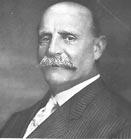
1927
Vaccines for tetanus and tuberculosis are developed
First practical respirator, dubbed the "Iron Lung," developed by Harvard medical researcher using an iron box and two vacuum cleaners
1952
1955
Polio vaccine is licensed in the U.S. and incidence of polio declines sharply Bexar County Hospital District is formed
Jonas Salk produces the polio vaccine
The first successful cardiac pacemaker is developed
1942
Influenza vaccine produced Communicable Disease Center (Center for Disease Control and Prevention) opens
1945
The first kidney dialysis machine is invented by Dutch physician Willem Kolff
1954
First successful human kidney transplant is performed by a team of doctors in Boston
The American Cancer Society announces a link between smoking and lung cancer

Visit us at www.bcms.org 15 BCMS 170TH ANNIVERSARY
170 Years of BCMS Milestones
1960’s
It was through the efforts of BCMS members that San Antonians received mass immunization of the Sabine Oral Polio vaccine, virtually eliminating the summertime scourge of polio epidemics in San Antonio
1962
1970
More women begin entering the medical profession – the number of female medical students grows from 9 percent in 1970 to 25 percent by the end of the decade
1969
TEXPAC forms

The modern technique of hip replacement is developed by British orthopedic surgeon Sir John Charnley
1972
Rubella vaccine is licensed in the U.S.
1977
First vaccine for pneumonia developed
1982
Artificial heart (Jarvik-7) operation is successful
1983
Computerized axial tomography, or CAT scans, are first introduced
1974
First vaccine for chicken pox developed
1960
Combined oral contraceptive or birth control pill is approved by the FDA
1965
President Johnson signs legislation creating Medicare and Medicaid programs
The first commercial ultrasound machine is produced
1971
First soft contact lense licensed for use in the U.S.
1976
Dean Kamen develops a portable insulin pump for mass market
1975
DNA sequencing is born as researchers at Harvard and Cambridge simultaneously develop different methods for determining the sequence of bases in DNA

1968
Dr. Christiaan Barnard completes first heart transplant in Texas

1978
First test-tube baby is born
HIV is identified as the virus causing AIDS
1986
Anti-depressant Prozac is approved for medical use
1980
World Health Organization announces that smallpox has been eradicated
1981
First vaccine for Hepatitis B is developed
Human Growth Hormone (HGH) is identified and synthesized
First commercial MRI (magnetic resonance imaging) scanner on the medical market
IBM introduces first personal computers
1988
Dr. Julio Palmaz of San Antonio develops the intravascular stent
1990
139,000 People in the U.S. have HIV/AIDS –60 percent mortality rate

Federal legislation mandates Medicaid coverage of eligible children ages 6-18
Human Genome Project to identify more than 100,000 genes in human DNA gets underway
16 SAN ANTONIO MEDICINE • September 2023
vaccine is licensed in the U.S.
Mumps
1967
Measles vaccine is licensed in the U.S.
1963
BCMS 170TH ANNIVERSARY
and Medical Breakthroughs
1992
BCMS signs "declaration of cooperation" with Kumamoto City Medical Association in Japan
1993
2004
Dr. Rajam Ramamurthy becomes the first woman to lead BCMS as President

2005
2015
2016
Bexar County Medical Society

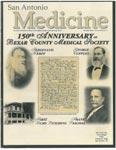
Building Dedication and Ribbon cutting, May 24
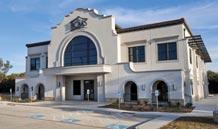
World Health Organization announces outbreak of the Zika virus
TMA Foundation established
1996
Hurricanes Katrina and Rita slam the Texas-Louisiana coasts prompting a massive emergency response operation from the San Antonio medical community
World Health Organization declares that rubella has been eradicated from the Americas
2017
Health Insurance Portability and Accountability Act (HIPPA) sets standards for medical records privacy
2001
First successful tele-surgery is performed by a group of French doctors using the Zeus Surgical Robot

2003
Human Genome Project declared ahead of schedule
Texas legislature passes tort reform capping noneconomic damages in healthcare liability cases
Medicare Drug Improvement and Modernization Act creates subsidized prescription drug benefits under Medicare
BCMS celebrates sesquicentennial
2010
Patient Protection and Affordable Care Act is signed into law
2006
First vaccine for Human Papilloma Virus (HPV) is approved
2014
Ebola virus epidemic in West Africa infects 28,616 and kills 11,310
The U.S. declares the opioid epidemic a national emergency
2019
Texas Tobacco 21 law passes

2020
The World Health Organization announces on January 9 that a deadly coronavirus has emerged in Wuhan, China –the virus will spread to over 20 million people in a matter of months, killing 751,000 people. The coronavirus pandemic triggers a global recession as several countries go into lockdown – the Dow Jones suffers its worst single-day point drop ever on March 9
COVID-19 vaccines become available in December under Emergency Use Authorization
Dr. Dianna Burns-Banks is first African-American woman to lead BCMS as President

2013
First kidney is grown in vitro in the U.S.
A human liver is grown from stem cells in Japan
2011
A windpipe is the first artificial organ implant
In April, the BCMS PPE Donation Program distributed 650K items of PPE to our members, 6 million PPE to the Food Bank, 300K to TX Med Clinic, Haven for Hope, Catholic Charities and dozens of community sources, and shipped 5 pallets of KN95’s, cloth masks, disposable surgical masks and liquid hand sanitizer to the government of Namibia, Africa.
2022
TMA wins federal lawsuit on surprise billing rule
First lab-grown red blood cells transfusion
2023
Vaccine for bees against American Foulbrood bacteria approved, making it the first vaccine in U.S. for any insect
Texas Vista Medical Center closes after 40 years
Visit us at www.bcms.org 17
BCMS 170TH ANNIVERSARY
A History Lesson – Looking Back
By Daniel Tamez, MD
The year was 1964. I was in the 8th grade and invited by my Uncle J.B. Gonzalez, MD, and his son, Bobby, to attend the monthly Bexar County Medical Society (BCMS) meeting. Hot dogs were on the menu and served in the Society parking lot on French Place. Eventually, the meeting was called to order, and all the chairs were full of Society members. I remember a very active interaction with debates and votes. The particular topics were of no concern at this time since I was still concentrating on delicious wieners and dessert cookies.
Fast forward to 1982 when I started private practice in peripheral vascular surgery with Peripheral Vascular Associates. I immediately became involved with the Society and served on the board from 19861989. During this time, as head of the legislative committee, we initiated monthly visits to Austin on the first Tuesdays of every month. Ben White, CEO of the Society, was very helpful and instrumental in organizing our efforts. Mr. White had the privilege to serve and learn under the tutelage of Sid Cockrell. Sid Cockrell, husband of Mayor Lila Cockrell, served as CEO of the Society from 1956 to 1980. Ben White served from 1980 to 1990.
I believe that years later, the Texas Medical Association adopted this political outreach and labeled it “Taking Medicine’s Message to the Capitol.” This endeavor also occurs on the first Tuesday of the legislative session. BCMS has always been one of the most active and innovative Medical Societies in the country.
Retrospectively, I was a bit surprised as a member of the board in 1986. There was no large attendance, only elected officers and a few staff personnel attending the meetings. There is a consequence of growth. Membership served approximately 250-350 in 1964, and now as a member in 1986, the membership was close to 2,000. One of the most important things I’ve learned along the way is “nothing stays the same.”
The sheer numbers of members prevented any significant mass of attendance and obviously any spirited debate. The present membership of BCMS is 5,600.
One statement I will always remember from Mr. White was the 1080-10 rule for any organization. Again, I want to say, personally and Society-wise, we were blessed to have an extraordinary person at the helm.
Back to the rule:
• 10% of all members perform all the work
• 80% of the membership are on the roll call
• 10% of the membership does all the complaining
Obviously, turning back the clock is not an option. It would be quite difficult to get the entire 5,600 membership involved. While we are experiencing a history lesson, I will share with you my
heritage and a look back in time.
Frank Paschal (18451925) was president of the Society in 1893. Dr. Paschal served the Society as well as many statewide societies. His chief work was surgical, and his large collection of bladder calculi was presented to the University of Texas Medical Branch in Galveston. He was one of the first to appreciate the seriousness of tuberculosis in Texas. Dr. Paschal aided in the building of the Physicians and Surgeons Hospital, which today is Baptist Medical Center on Dallas Street.
George Paschal, his brother, served as District Attorney, then Mayor of San Antonio from 1893 to 1894. Both of these brothers contributed to the civic and medical communities.
The Paschal family originally came from Georgia. Their father was Franklin Lafayette Paschal, who served the state of Texas, and eventually held several elected offices in San Antonio. He was a representative from San Antonio and served in the 8th legislature. From humble beginnings, the Paschal family served their state and their city.
This leads me to my family, which mirrors the service of the Paschal family. My grandfather, Leonides Gonzalez, and grandmother, Genoveva, fled Mexico during the revolution of 1910-1912. He was spared the firing squad of Pancho Villa’s army when he was freed by a citizen of their pueblo. The Gunter Hotel was their first refuge, but eventually they settled on Upson Street not far from the center of town. My grandfather was the editor of the first Spanish-language newspaper, La Prensa, in North America.
My grandparents were the first “dreamers.” They understood English but never learned to speak the language, for they dreamed of returning to their homeland. Fortunately, their quest to return never occurred, and their gratitude and service to their new country were passed on to their offspring.
Henry Gonzalez, their son, served San Antonio as a city councilman, state representative and finally, forty years as a United States Congressman, representing the 20th district. He was the first Mexican American in Texas elected to the state legislature and United States Congress. In fact, he was the first to be elected nationwide. My uncle dearly loved the United States and was proud to be an American. If one questioned
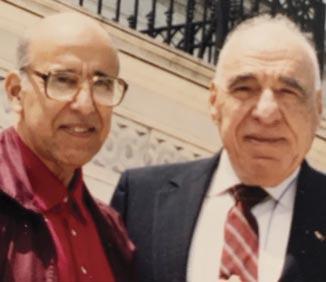
18 SAN ANTONIO MEDICINE • September 2023 BCMS 170TH ANNIVERSARY
Joaquin B. Gonzalez and Henry B. Gonzalez
his allegiance to his country, one would have a fight on their hands. Today, the evidence of his labor can be seen all over San Antonio, including the Convention Center named after him. My uncle was instrumental in preserving Brook Army Medical Center, which is now the only Level 1 trauma center within the Department of Defense.
Joaquin B. Gonzalez, MD, continued the family medical legacy of service from his uncle Joaquin Cigarroa, MD, who built his practice in Laredo, Texas. My uncle’s medical school education was shortened by two years due to World War II. He eventually commanded a small medical ship platoon on the Queen Mary. He and one other physician were responsible for nearly 5,000 soldiers being transported to the war front and returning with 5,000 injured soldiers with spinal injuries and psychiatric problems (PTSD). He was the first Hispanic elected as president of BCMS in 1980. He was one of the original physicians of the Poly Clinic next to the Santa Rosa Hospital, a multispecialty practice with an in-house pharmacy made up of all Hispanic physicians serving the minority population. J.B. was a gifted physician, scholar and athlete. He competed statewide and nationally. He was very active at Santa Rosa and served as Chief of Staff. Despite his busy practice, family and multiple medical responsibilities, he always found time to repair my many lacerations during my adolescence.
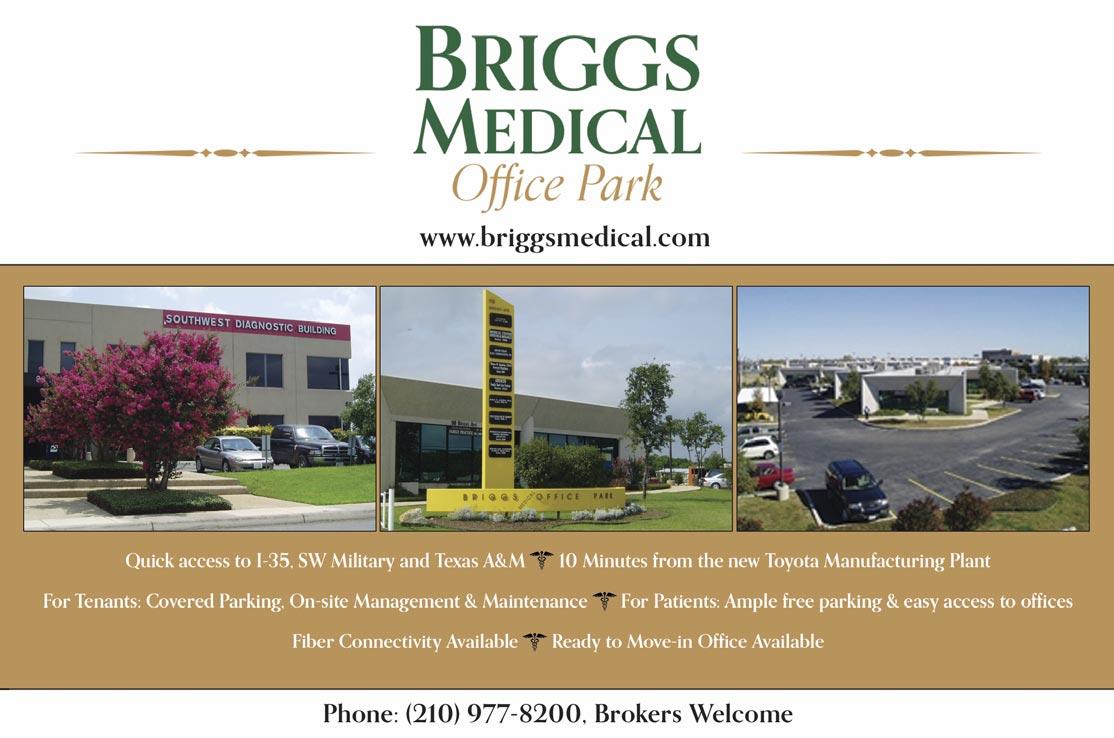
Finally, this is my look back on history. A history of service and devo -
tion throughout the ages by dedicated persons who paved the road for our generation and generations to come. Service is described in the Oxford English Dictionary as “the action of serving, helping or benefiting; conduct tending to the welfare or advantage of another; condition or employment of a public servant; friendly or professional assistance.”
After 40 years of peripheral vascular surgical practice, I retired in May of 2022. One regret is the inability to serve the Society and our patients. Due to personal family reasons, I did not actively participate in the Society after 1990. I had the opportunity to run for president of the Society and was encouraged by Ben White, but elected not to do so.

Regrets ... As the song goes, “I’ve had a few but … too few to mention.”
I truly appreciate the time, energy and sacrifice of those who actively guide our Society. Unquestionably, the added responsibility is stressful and time-consuming, but history will look back and say, “Well done, good and faithful servant.”
After a distinguished 40-year career, Dr. Daniel D. Tamez. Jr. retired from practice in May of 2022. During his career, Dr. Tamez elevated the standards of care in vein and artery disease across San Antonio and South Texas. Dr. Tamez, along with Ben White, BCMS former CEO, was instrumental in starting the First Tuesdays at the Capitol initiative.
Visit us at www.bcms.org 19 BCMS 170TH ANNIVERSARY
BCMS Recollections: Dr. Jaime Pankowsky
 By Andrew Ta
By Andrew Ta
r. Jaime Pankowsky was born in Santa Barbara, a small city in the Mexican state of Chihuahua. He completed medical school at Universidad Nacional Autonoma de Mexico and finished most of his general surgency residency at Sinai Hospital of Baltimore. However, prior to the completion of his residency, Dr. Pankowsky, as a Mexican immigrant on a work visa, was let go to make space for the influx of doctors after the conclusion of the Korean War. With the looming threat of losing his work visa and being forced to return to Mexico, Dr. Pankowsky started a family medicine residency at Memorial Hermann in Houston. Then, finally, the University of Texas Health Science Center at San Antonio (UTHSCSA) gave him a chief resident position in 1960, and he was able to complete his general surgery training. He has remained in San Antonio for almost his entire career.
D
ful that government involvement in medicine would lead to corruption. Dr. Pankowsky, however, who directly witnessed people in emergency rooms being denied care due to lack of insurance, argued that “the government should provide [for its people], and [this] is the very reason why we have government in the first place.” These productive discussions between opposing groups were one of his many contributions to BCMS over the years.
When Dr. Pankowsky first became a member of the Bexar County Medical Society (BCMS) in the 1950s, BCMS comprised a three-story office building in downtown San Antonio. Over his more than 40-year career, Dr. Pankowsky has seen the Society go through immense changes, growing and transforming into what it is today. One of the greatest changes over the years, he explains, is the increasing diversity within medicine in San Antonio.
At the beginning of his time with BCMS, the Society was controlled by the descendants of the first doctors in San Antonio — a group of family practice physicians immigrating from Germany in the 19th century. At the time, Dr. Pankowsky explains that the Society resisted the settlement of doctors from other countries.
During the Korean and Vietnam Wars, however, there was a shortage of physicians as able-bodied men joined the war efforts in the Eastern hemisphere. Furthermore, the city was changing in character as an influx of people immigrated from Mexico through the Bracero program, bringing many Mexican agricultural workers to the U.S. They were forced to accept doctors from the outside, and combined with the growing Hispanic population in San Antonio, Dr. Pankowsky, as a Mexican American, found an opportunity to meet the diverse medical needs of the growing bilingual community. Coupled with the increasing diversity of San Antonio patients was an increase in diversity and specialists within BCMS.
As BCMS became more diverse, Dr. Pankowsky was able to find a welcoming community here. That is not to say, however, than he has always fully supported their decisions. Most notably, he explains that the BCMS early on stringently opposed Medicare and Medicaid, fear-
At the end of our interview, I asked Dr. Pankowsky what his message would be to future generations of physicians. First, he explained that at its core, medicine should be treated as a science and not as a business, and it is our duty within healthcare to reject disinformation no matter what financial incentives or ulterior motives may follow. He specifically cited the current war against vaccines where groups deny the long history of vaccinations for dangerous personal gain. Secondly, he wanted to emphasize that doctors should hold modesty and humility central to their practice. The struggle in medicine is knowing that we are limited by the science of our times and that we will not be able to heal everyone. Equally important to diagnosing and treating patients is knowing when our treatments fail and when to let go. Death is inevitable, but we can work to facilitate their transition and fulfill our role as physicians.
As I left his quaint and peaceful home after our interview, I was surprised by the normalcy of the experience. Dr. Pankowsky served our San Antonio community for nearly 50 years, both as surgeon and through his continued work with BCMS. Despite his long and successful career, he met me with kind eyes and a bright smile, and he openly shared the struggles and changes he saw in San Antonio throughout his life. Dr. Pankowsky was serendipitously brought here to complete his residency in the 1960s, but he eventually found and helped foster a welcoming community, contributing to the shift toward diversity in medicine both in character and in thought.
***This article was written based off interviews with Dr. Pankowsky in his home. They describe his subjective experience with BCMS and do not necessarily reflect the current opinions of the Society.
Andrew Ta is a medical student at the Long School of Medicine, Class of 2026. He is the 2023 Student-Faculty Collaborative Practice President overseeing the six student-run free clinics and is the 2023-2024 writing lead for Connective Tissue, the school's literature and arts journal. Andrew is also a member of the BCMS Publications Committee.

20 SAN ANTONIO MEDICINE • September 2023 BCMS 170TH ANNIVERSARY
UIWSOM: Past, Present and Future
By UIW Office of Communications
If it is true that location is one of the first keys to success, then the University of the Incarnate Word School of Osteopathic Medicine (UIWSOM) has been destined for great things since day one. While the school held its official ribbon-cutting opening in July 2017, the history of medicine at the southeast San Antonio location, now known as Brooks, dates back nearly 100 years. It was in 1927 that Brooks Field was officially made the home to the School of Aviation Medicine. That place in history was further solidified on the historic day of November 21, 1963. That is when President John F. Kennedy came to the site, by then known as Brooks Air Force Base, to dedicate the U.S. Air Force School of Aerospace Medicine. It would be the home and training ground for major steps forward in space exploration and in medicine including the invention of the MRI machine and Lasik surgery. Tragically, President Kennedy would be assassinated the very next day, but the mission of changing lives set in motion on the previous day continues to motivate the learners, faculty and staff of UIWSOM.
“When John F. Kennedy dedicated the center, he spoke of those assigned to the center as ‘pioneers’ and ‘pathfinders’ focusing on the ‘new frontier’ of space,” said Dr. Denise Doyle, who was interim UIW president at the time of the opening of UIWSOM. “Our founding dean, Dr. Robyn Madson, frequently captured these same sentiments when she described an innovative medical curriculum which included outreach to the community around Brooks. She was convinced that Brooks was the right place for the UIWSOM because the southeast sector was the right environment to educate a new generation of doctors ready to address the very real medical needs of so many underserved swaths of this city and country.”
Despite the apparent serendipity of the location of UIWSOM, the original site being considered for the school was not the then developing Brooks City Base. Fox Tech High School in downtown San Antonio was a possibility, but UIW leadership, led by Doyle, Madson and long-time UIW President Dr. Louis Agnese, had a much bigger vision for UIWSOM. And for that, they needed room to grow.
“A big reason for locating at Brooks had to do with available space,” said Doyle. “We negotiated a very fair agreement with Brooks to take over a number of buildings there, with an option to lease more when and if we needed. Another compelling reason for moving to that part of town was the potential the medical school had to be a positive presence in a largely underserved area of San Antonio. Brooks provided the opportunity for the UIWSOM to stand out by being a stand-
alone facility that would shine on the southeast side of San Antonio. Additionally, the plan was always that our medical students would interact with the people of the area, providing health screenings, educational opportunities, health clinics and more.”
And, in less than a decade, the learners at UIWSOM have already made an impact. Through various clinics and programs in the community, faculty and students have addressed everything from chronic conditions to the problem of food deserts to launching a Mobile Osteopathic Medicine unit, just to name a few. In perhaps one of their most high-profile achievements, learners and faculty played a major role in delivering COVID vaccines to hundreds of people across southern Bexar County through a multitude of events during the height of the pandemic.
UIWSOM graduated its first class in May 2021. Those students joined the ranks of countless graduates of the other UIW Health Profession schools: the Ila Faye Miller School of Nursing, the Feik School of Pharmacy, the Rosenberg School of Optometry and the School of Physical Therapy. And the future is bright as graduates from UIWSOM have already gone on to residencies all across the nation with most of them landing in Texas to assist in underserved areas. But for now, UIWSOM will stand as a beacon of hope for healthier days on San Antonio’s southside and the legacy of so many who have studied medicine on this historical site.
“We have graduated over 400 physicians now in residency programs in San Antonio and across the country,” said UIWSOM Dean and Chief Academic Officer, Dr. John Pham. “Incredible things are happening at Brooks and we are proud to be a part of the change and growth. We now own multiple buildings on the former Brooks Air Force Base in hopes of developing a UIW Health Professions campus and welcoming the other UIW Health Professions to this location. What will never change is the commitment of our graduates to improve the health outcomes of their community, in San Antonio, South Texas and throughout the U.S.”
“The present gives birth to the future,” concluded Doyle. “What we dared to hope for at the beginning of all these initiatives will be years in the making. We are confident that 25 years from now and more, the UIWSOM, as well as the other UIW Health Professions schools, will outgrow our first hopes and achieve more than we imagined. But with the UIWSOM, one dream not to be lost, is of a School of Osteopathic Medicine emmeshed in the community where it is located and a sign of hope for local students dreaming of a future in medicine.”
Visit us at www.bcms.org 21 BCMS 170TH ANNIVERSARY
UT Health San Antonio: Meeting the Growing Needs of South Texas
By Robert Leverence, MD, FACP
Six decades ago, the land that is now The University of Texas Health Science Center at San Antonio was a small dairy farm with two grain silos.
In the time since Gov. Price Daniel signed House Bill 9 in 1959, creating the South Texas Medical School, the university has grown along with the booming San Antonio region and the healthcare needs of its people.
Let me briefly update the reader on the many new initiatives of The University of Texas Health Science Center at San Antonio, also called UT Health San Antonio. It has become the largest academic research institution in South Texas and is a primary driver of the city’s $44.1 billion healthcare and biosciences sector. Its medical practice, UT Health Physicians, is the largest medical practice in South Texas and offers more than 100 specialties and subspecialties, and more than 450 ongoing clinical trials. Last year we were privileged to serve our community through 2.2 million patient visits.
San Antonio is one of the largest and fastest-growing cities in the U.S. and added more than 13,000 residents between 2020 and 2021. Geographically at the center of South Texas, San Antonio reflects the demographic future of the country, with a large and growing Hispanic population. The roughly 5 million residents who live within the university’s 38-county service area of South Texas include those concentrated in bustling urban centers and scattered across underserved rural areas. Significant health challenges prevalent throughout the region include heart disease, cancer, diabetes and substance use disorders.
To keep up with San Antonio’s growth and its ever-expanding healthcare needs, UT Health San Antonio plans to invest more than $1 billion over the next four years, reflecting unprecedented growth for the institution.
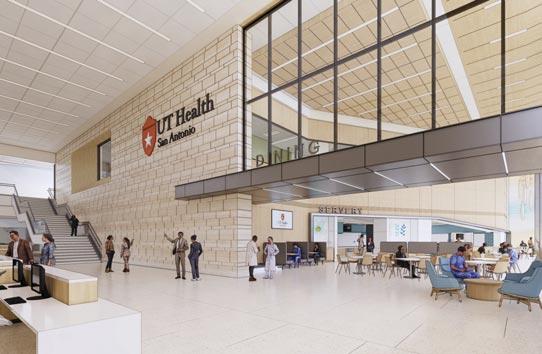
In support of our region’s critical health needs, our institution plans to open the UT Health San Antonio Multispecialty and Research Hospital in December of 2024. The eight-story, 144-bed hospital will be located on 12.2 acres at 8311 Ewing Halsell Drive and will offer complex specialty care in cancer, orthopaedics and more. It will also provide early stage clinical trials, as well as immunologic and stem cell therapies for cancer.
The hospital will be connected by a sky bridge to the Mays Cancer Center, one of only four National Cancer Institute-designated cancer
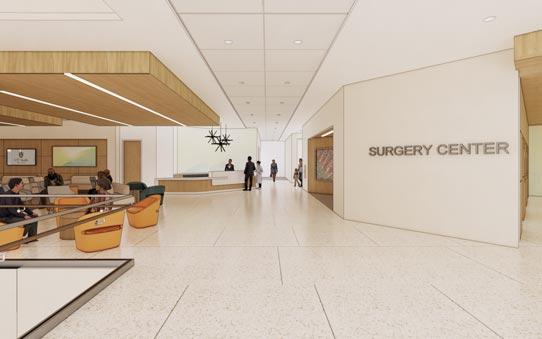
centers in Texas and home to UT Health San Antonio MD Anderson Cancer Center.
We have other plans as well. The north and northwest quadrant of Bexar County is growing more rapidly than any other segment of the area. To better meet that demand, UT Health San Antonio will open UT Health at Kyle Seale Parkway to offer primary and specialty healthcare, as well as outpatient surgical services.
The five-story, 108,000-square-foot community medical facility will be located near the southeast corner of Loop 1604 and Kyle Seale Parkway, and will open in early 2024. Services will include primary care, gastroenterology, obstetrics and gynecology, ophthalmology, orthopaedics, otolaryngology, physical medicine and rehabilitation, and physical ther-
22 SAN ANTONIO MEDICINE • September 2023 BCMS 170TH ANNIVERSARY
UT Health San Antonio Multispecialty and Research Hospital
apy, as well as radiology—with diagnostic laboratory testing and advanced imaging services including MRI, CT scan and ultrasound.

The center will include an ambulatory surgery center with four operating rooms. And it will have approximately 30,000 square feet of shelled space for future expansion.
Let me now talk about our aging population and the growing concerns for dementia. The primary risk factor for developing dementia is a person’s age. According to census data, Bexar County is home to 250,000 senior adults 65 and older, and the number is projected to grow as San Antonio is an attractive retirement destination. The city’s population is more than 60 percent Hispanic. Data show Hispanics are 1.5 times more likely than Caucasians to develop dementia.
Our Center for Brain Health, the first-of-its-kind regionally, will work to advance research and provide care of patients with Alzheimer’s disease, related dementias, movement disorders, amyotrophic lateral sclerosis (ALS), and other neurological disorders. The facility, will be located adjacent to the UT Health San Antonio Medical Arts and Research Center (MARC), and will serve as a major U.S. center in the recruitment of Hispanics into clinical trials, expanding the nation’s understanding of how these diseases specifically affect them.
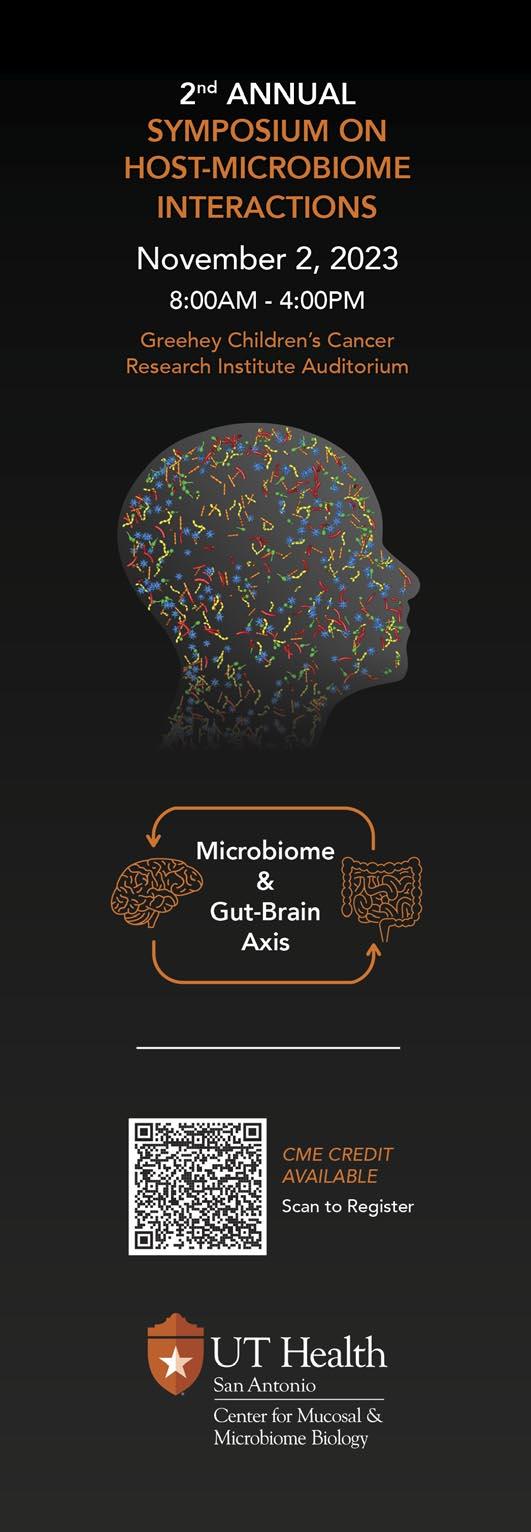
Finally, as an academic health center, UT Health San Antonio works to advance healthcare through education and research. UT Health San Antonio has a $360 million annual portfolio of biomedical research, and each year, the university graduates approximately 200 physicians, 400 nurses, 100 dentists, 560 professionals in other health fields and 130 scientists (FY22).
Recognizing the burgeoning health needs and persistent health disparities of the region, The University of Texas System Board of Regents paved the way in November 2021 to create an independent school of public health in South Texas. Consequently, San Antonio will be the site of The University of Texas School of Public Health San Antonio, a collaboration between The University of Texas Health Science Center at San Antonio and The University of Texas at San Antonio. In June 2022, the Bexar County Commissioners Court gave preliminary approval to award $10 million from the county’s American Rescue Plan Act funding toward the school’s development.
Until now, San Antonio remained the largest city in the nation without an independent school of public health to focus efforts on the broad health concerns of the South Texas region. This strategic collaboration will accelerate efforts to improve health outcomes and build a workforce equipped for that mission.
We at UT Health San Antonio are privileged to serve our South Texas community, and by continuously attracting the very best and brightest faculty and staff, we will ever strive to meet the ever-changing, evergrowing needs of the unique San Antonio and South Texas region.
Visit us at www.bcms.org 23
Robert Leverence, MD, FACP, is the Vice Dean for Clinical Affairs at the Joe R. and Teresa Lozano Long School of Medicine of UT Health San Antonio, and the Executive Director of UT Health Physicians.
170 Years of Organized Medicine and Legislative Advocacy in San Antonio Part 1
By Mary E. Nava, MBA
In the last 170 years of organized medicine in San Antonio and Bexar County, the preceding 20+ years have ushered in more changes to medicine’s landscape than ever before.
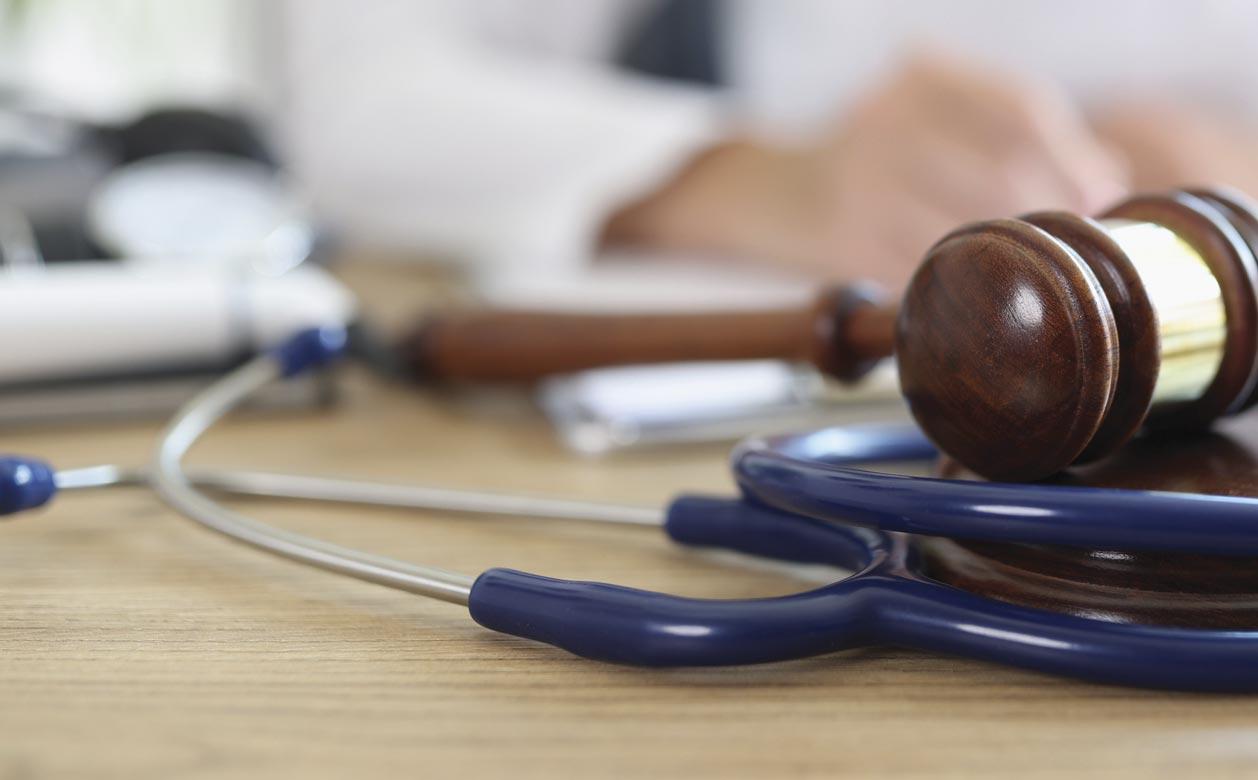
The involvement of San Antonio physicians in organized medicine grew exponentially over the years along with their involvement with the Texas Medical Association (TMA). Bexar County Medical Society (BCMS) physicians and staff worked together to recruit more members, and to encourage member participation in the various county medical society volunteer committees, leadership positions on the Board of Directors, exclusive Society-member events, public health community events and a host of TMA conferences, committees, councils and events.
Established in 1853, BCMS is the oldest county medical society in Texas. The earliest BCMS archived records in our on-site library reveal
that BCMS physicians were active politically as far back as 1916. In those early years of the Society’s existence, what defined “being politically active” took on different roles. For example, the earliest indications of a committee structure within BCMS show that over the years, committees were established as current needs required it. At times, the Legislative Committee was a stand-alone committee; other times, it was known as the Legislative and Public Health Committee. Many times, what was termed as “legislative” was not always legislative. Sometimes, the business of the BCMS Delegation to TMA was interwoven into the Legislative Committee.
Back in the late 1980s, (see article by Daniel Tamez, MD, in this issue), physician members of the BCMS Legislative Committee became involved with legislative advocacy, hosting legislators for meetings and also going to the Capitol on the first Tuesday of every month dur-
24 SAN ANTONIO MEDICINE • September 2023 BCMS 170TH ANNIVERSARY
ing the legislative session. It wasn’t until the year 2000, with the support of the leadership of the TMA, that BCMS took a more coordinated and formalized approach to legislative advocacy. BCMS and TMA started having member meetings at the county medical society level to first establish key contacts, that is, identifying and recruiting member physicians and their spouses who had close relationships with their respective state representatives and senators, who could then utilize this advantage as a way to “get in the door” with our respective legislators.
When I joined BCMS in February of 2000, among my many responsibilities was managing the Society’s media and communications, marketing and legislative committees. So, within just a few months of my arrival, as the Legislative Committee staff liaison, it was my role to assist and ensure coordinated efforts, along with our physician and Alliance members, to effectively launch these organizational meetings. Excitement was building because physician members were becoming more active politically, due in part because of the necessity to do so as a result of the increasing litigious environment, but also after successful legislative events and activities led by their spouses through the BCMS Alliance.
On the local front, public health issues were always of importance and the issue of water fluoridation had surfaced once again, and although proposals failed previously, the San Antonio City Council took the issue to the voters in 2000. BCMS physicians were front and center during the campaign, and wearing their white coats, participated in a press conference in support of fluoridation on the steps of City Hall.
Voters responded in favor of the measure in November of 2000.
In addition, in 2002, BCMS joined the Smoke Free San Antonio Coalition, a coalition then comprised of 28 organizations who worked to support a clean indoor ordinance that would eliminate tobacco smoke in all public places.
As was the case in Texas, patient access to care was becoming more and more threatened with the onslaught of frivolous lawsuit attacks on physicians and their practices. Physicians were closing their practices or moving out of the state. The southern portion of our state, the border region, was especially being targeted. On April 8, 2002, a “Day of Awareness” was held in various border cities, and also in San Antonio, where physicians closed their practices for a half-day to join in solidarity, wearing their white coats, to host press conferences to inform and educate the community about the serious medical malpractice insurance crisis and what this meant to access for care for patients. A large contingent of BCMS physicians and staff organized and attended our local press conference held on the steps of the Bexar County Courthouse. News media outlets covered the day’s events throughout the region.

Shortly thereafter, in May of 2002, a group of physician leaders from the border region/South Texas came to San Antonio to meet with local physicians to discuss their plight and to, in effect, establish a Coalition of physicians representing the border region/South Texas, from Brownsville to El Paso, including San Antonio. As San Antonio is considered the “gateway to South Texas,” it only made sense to include BCMS members, since San Antonio is unique in that it most closely mirrors many of the same patient-physician issues being faced in the border region, coupled with the fact that these border health concerns eventually travel north. As a result of this physician meeting, the Border Health Caucus (BHC), as it is now named, was formally established. The BHC is an informal, ad-hoc caucus, composed of several county medical societies, representing over 10,000 physicians, including: El Paso CMS, Maverick CMS, Tri-County (Webb, Jim Hogg, Zapata) CMS, Hidalgo-Starr CMS, Cameron-Willacy CMS, Nueces CMS and BCMS. BCMS past president, Antonio Cavazos, Jr., MD, was one of the founding members of the BHC. He and several physicians from San Antonio, including our current president, John Nava, MD, along with BCMS staff, have continuously attended meetings of the BHC over the last two decades.
Also, in 2003, the TMA Alliance launched First Tuesdays at the Capitol. The program, which celebrated its 20th anniversary this year, brought physicians, Alliance members, residents, medical students and staff from around the state to the TMA offices for a day of legislative briefings and a coordinated walk to the Capitol from the TMA building, with physicians wearing their white coats as a show of solidarity. continued on page 26
Visit us at www.bcms.org 25
BCMS 170TH ANNIVERSARY
continued from page 25
Once at the Capitol, physicians stopped by their respective legislator offices to attend pre-scheduled meetings organized by their respective county medical society staff. The success of the program continues to this day, and everyone enjoys participating in these visits to bring a united voice to help educate legislators on medicine’s issues and offer assistance with providing information on questions they may have on any topic of importance to medicine.
During the 2003 Legislative Session, the hottest topic on every physician’s list to discuss with their legislators was that of the tort reform and medical liability bill, a measure known as HB 4, that would place a cap of $250,000 for non-economic damages on physicians in a civil case. Needing a two-thirds majority or 100 votes to pass in the House, the Texas House of Representatives passed HJR 3, the constitutional amendment and companion piece to HB 4 in March of 2003. In the Senate, the measure stymied in the Senate State Affairs Committee, but eventually, the 2003 Texas Legislature went on to approve the landmark legislation, which authorized a state constitutional amendment special election.
By the summer of 2003, Proposition 12 (Prop 12) or the tort reform constitutional amendment had made its way to the ballot box and hence began the most structured campaign program yet, led by officials from the TMA, the Texas Alliance for Patient Access (TAPA), the Texas Medical Liability Trust (TMLT) and Texans for Lawsuit Reform (TLR) to educate patients and the community about the importance of this constitutional amendment and what its passage would mean for the state of Texas, for patient access to care and for physicians and their practices. Local grassroots efforts were equally successful, with physicians everywhere talking to their patients and handing out educational materials regarding Prop 12. They were posting signs in their yards in support of Prop 12, visiting shopping malls to talk to people and handing out Prop 12 materials, including posters and bumper stickers. Some participated in news media interviews or penned opinion pieces for the local newspapers. Alliance members, too, assisted with these activities and did much to help organize getting the word out to family, friends, office staff, churches and many other groups. The constitutional amendment election took place on September 13, 2003. Texas voters approved the amendment to the state constitution, granting the Texas Legislature authority to set caps on non-economic damages in healthcare suits. Prop 12 passed by more than 30,000 votes from San Antonio south, including Corpus Christi and El Paso. Approximately half of the votes came primarily from rural areas. The excitement leading up to election night was incredible. For the first time in the history of organized medicine, the concerted effort by all parties involved brought a successful outcome to an issue that affected patients, physicians and their practices across the state, that of access to care. BCMS physician members were so thrilled when Prop 12 passed in Bexar County, this
opened up opportunities to expand on this win and to take legislative advocacy to a whole new level at BCMS.
By the end of 2003, BCMS had established a promising legislative advocacy future and this resulted in my promotion to become the first Legislative Director, now Chief Government Affairs Officer and registered lobbyist in the Society’s then 150-year history. With the leadership of the BCMS Legislative and Socioeconomics Committees (these used to be separate committees, but now are joined as one), BCMS began coordinated efforts during the 2004 Interim Session to schedule individual visits with each of our state representatives and senators to keep them informed of medicine’s issues and to further establish meaningful relationships with them prior to start of the next legislative session. We continue these meetings to the present day and they have proven to be successful over the years for BCMS. Additionally, my focus is to work closely with the TMA lobbyists to carry out the TMA legislative agenda and also track legislation during legislative session years. Because BCMS members work full-time seeing patients, as their representative in Austin as a BCMS lobbyist, my function is to keep the momentum going on behalf of our members to communicate medicine’s message to our legislators and their staffs.
Legislative advocacy is the number one reason physicians join BCMS. The strength of having a unified voice on medicine’s issues, along with the “strength in numbers” exemplifies physician commitment to participate and take advantage of being a member of a Society that works hard for all issues of importance to medicine. From the Society standpoint, having a focused legislative staff member and lobbyist has elevated BCMS recognition both within the Texas Legislature and TMA. The credibility physicians aligned with BCMS bring to the table in Austin helps to define for legislators the honorable profession of medicine, the issues patients and physicians are facing today, and the effect lawmakers can have on healthcare legislation. The recognition by our legislators confirms that all our planning, participation, hard work and visibility in Austin has paid off and we have been successful in reaching our goal of being a strong voice in the San Antonio and Texas legislative arenas.
Look for the second installment of “170 Years of Organized Medicine and Legislative Advocacy in San Antonio” in the October issue of San Antonio Medicine magazine.
Mary Nava is the Chief Government Affairs Officer and Lobbyist for BCMS. She has been with the Society since February of 2000.

26 SAN ANTONIO MEDICINE • September 2023
BCMS 170TH ANNIVERSARY
The BCMS Membership –Serving Bexar County Patients
By Brissa G. Vela
Founded in 1853, the Bexar County Medical Society has become the 8th largest medical society in the United States. Throughout the years, and working alongside the Texas Medical Association, the membership at BCMS has grown its membership to over 5,600 physician members, residents and students. BCMS is also very fortunate to be one of the medical societies in the state of Texas with more than 300 military physicians as members.
The Bexar County Medical Society plays an important support role for its members. Its mission is to serve and represent the physicians in Bexar County in providing quality healthcare for their patients and public.
All BCMS Physician Members have access to a great array of benefits which include:
• Advocacy and Leadership
• Professional Growth Opportunities Through Committee Involvement
• Physician Wellness Coaching Classes
• Continuing Medical Education
• Physician Referral and Marketing Opportunities
• Leadership and Business Training
• Resident Specialized Courses
• Statewide Business Conferences
• Customized Marketing Plans
• Networking Professional and Social Events
Throughout the last decade, BCMS has seen a trend in membership that has benefited the citizens of Bexar County in specific specialties.
According to the Harvard Business Review, “the physician workforce in the U.S. ages (approximately one-fifth of U.S. physicians are over 65 years old, and the size of the group has increased 27% since 2005).” The Bexar County Medical Society average age maintains a consistent range in each group.
BCMS has seen a steady trend of members in the active resident and student categories in the last 10 years.
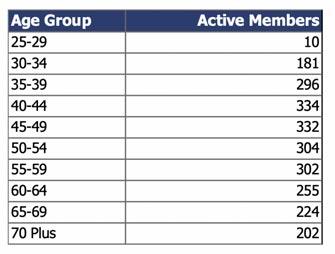
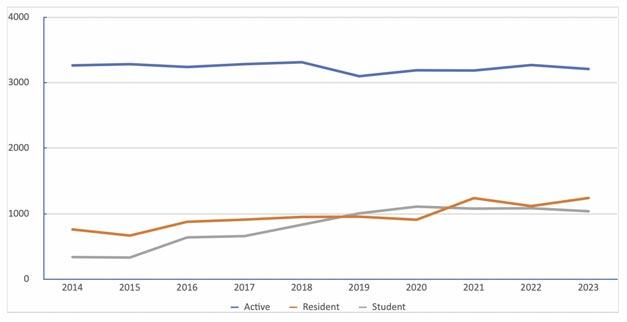
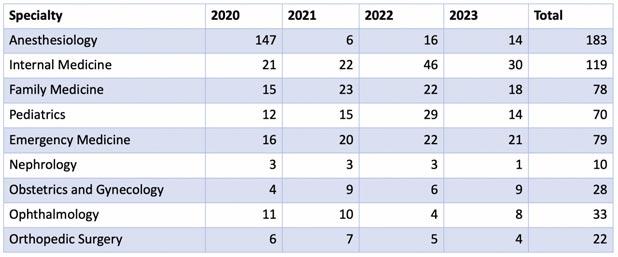
The Bexar County Medical Society continues to work to increase its membership in conjunction with the Texas Medical Association. Our support of the physicians, their staff and family environment have made Texas and San Antonio a very desirable place to practice medicine. We are here to help our physician members along the way.
For more information on how to join, please contact Brissa G. Vela, Membership Director at 210-301-4371.
Brissa G. Vela, BBA, has been the BCMS Membership and Event Director since 2013. She has been in the physician relations/marketing healthcare field for the last 23 years.

Visit us at www.bcms.org 27
BCMS 170TH ANNIVERSARY
The BCMS Circle of Friends Program 1994 to 2023
By August Trevino
The Circle of Friends (COF) program has undergone significant transformation from its early beginnings as a simple list of businesses making donations to the Bexar County Medical Society (BCMS). Ms. Joan Bailey, the first director of development, led the program from 1994 to 2013, setting the stage for its evolution. Under the current leadership of Mr. August Trevino, the COF program has flourished and become one of the most comprehensive and profitable medical society sponsorship programs of its type.
As BCMS has grown over the years, so too has the COF program and its wide-ranging benefits for physician members and the business community. Throughout its 30-year history, the COF has served as a vital bridge, connecting physicians with relevant and vetted service providers in the medical field. Moreover, the program has played a pivotal role in promoting the growth and prosperity of numerous businesses within our local medical community.
Despite facing challenges, including the recent COVID-19 pandemic that compelled many companies to reduce their donation budgets and social engagement, the COF program has remained steadfast in providing valuable benefits to physician members and the business community.
In essence, the COF program has grown hand-in-hand with the BCMS, assuming a central role in supporting physicians, fostering collaborations and driving the advancement of our local medical community. Under the guidance of dedicated leaders and with unwavering commitment, the COF program has become a pillar of success, exemplifying the power of partnerships between the medical and business sectors.
Circle of Friends Program Timeline and Milestones
1994-2013: Joan Bailey serves as Director of Development.
• 1994: Initial structure of the Circle of Friends program is established.
• 1997: The first formal list of supporters is featured in the December 1997 edition of the San Antonio Medicine magazine, listing sponsors alphabetically.
2013-Present: August Charles Trevino assumes the role of Director of Development.
• 2013: Circle of Friends program undergoes restructuring, offering sponsors specific benefits based on their level of sponsorship. Sponsors gain advertising opportunities in BCMS San Antonio Medicine magazine, newsletters, directories, website and mailings. They are also granted access to BCMS events, allowing for informal interactions with physicians without disrupting their practice operations.
• 2013: Implementation of a program sponsorship tracking and bookkeeping database, streamlining processes for onboarding new sponsors and tracking benefits, terms and options.
• 2014: Formal Mission Statement is created, outlining the Circle of Friends' main objectives. “To provide non-dues revenue to support the activities and services of BCMS while also meeting the needs of businesses in presenting their services and products to physicians in a professional and efficient manner.”
• 2014: Introduction of the monthly newsletter, Circle of Friends News, which keeps COF sponsors informed about networking opportunities, general news items, and marketing suggestions utilizing their sponsorship benefits.
• 2014: Implementation of a review process to screen potential Circle of Friends sponsors using resources such as the Better Business Bureau (BBB) and online business reviews, ensuring the safety of BCMS physician members.
• 2015: Milestone achieved as the largest Circle of Friends type program in Texas, determined through direct survey and internet research.
• 2018: Internal campaign launched with the slogan "Support Our Sponsors, They Support Us," aimed at informing physicians about the benefits of the Circle of Friends program. Physicians are encouraged to utilize sponsors' products and services whenever possible, thereby sustaining and supporting the COF program.
• 2021: The Practice Resource e-newsletter was introduced. This publication serves as a platform for COF sponsors to convey information to the physician community, including details about their services and products offered, as well as updates on medical community events. Moreover, the e-newsletter provides timely educational articles, Continuing Medical Education (CME) materials, and curated informative content tailored for physician members and their medical practices.
This timeline showcases the evolution and growth of the Circle of Friends program, highlighting key individuals, significant developments and notable achievements along the way. The COF program continues to serve as a valuable resource for BCMS and we do ask physicians members to support this platform. See us monthly in the San Antonio Medicine magazine BCMS Vendor Directory and online.
August Trevino is the Director of Development for the Bexar County Medical Society. He has been with the Society for 10 years.

28 SAN ANTONIO MEDICINE • September 2023
BCMS 170TH ANNIVERSARY
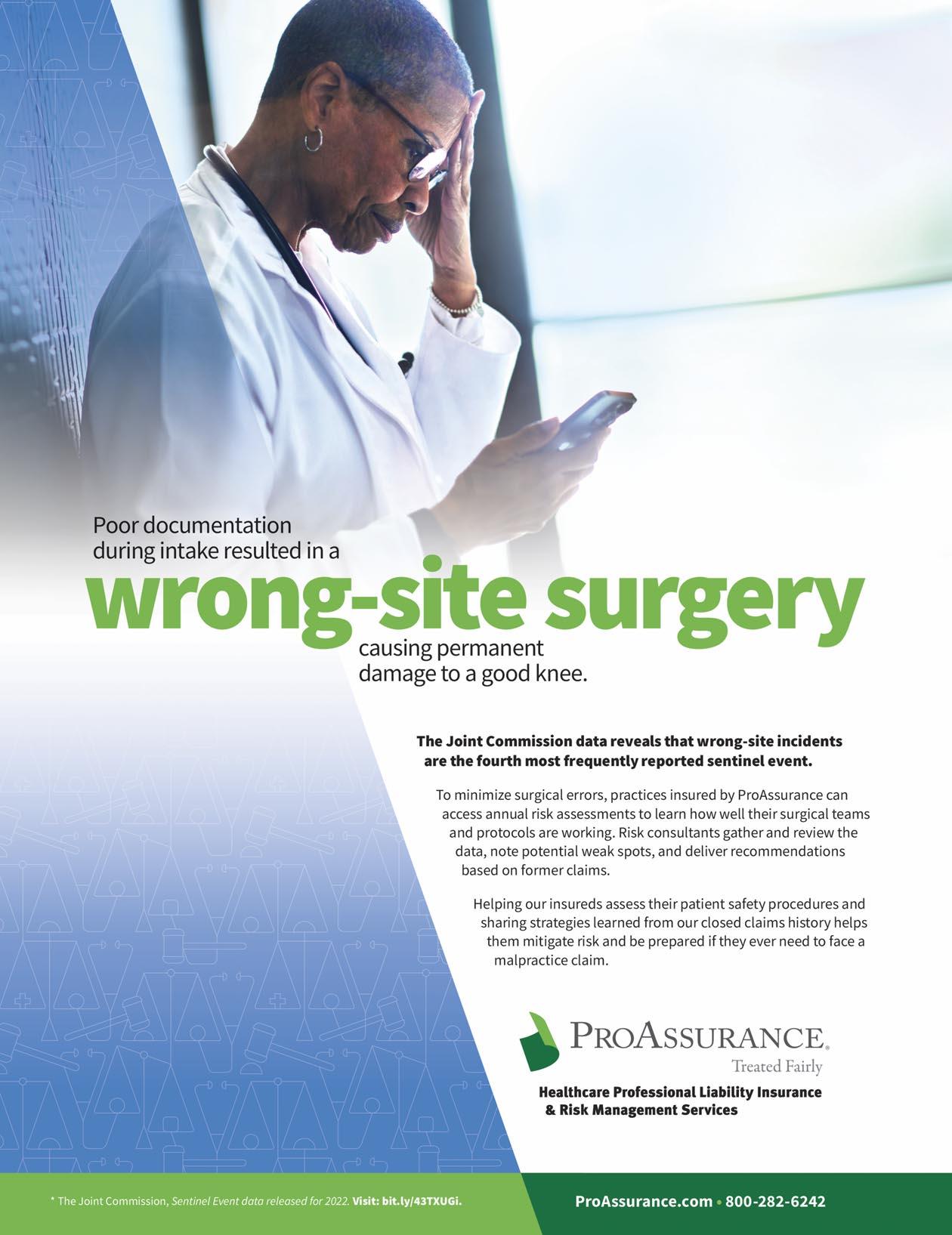
The BCMS Auto Program –Celebrating 40 Years
 By Phil Hornbeak
By Phil Hornbeak
The Bexar County Medical Society Auto Program was started in 1983. The idea was to offer our members an advantage when shopping for new or pre-owned vehicles. We enlisted local dealers and supported the program with a nominal marketing fee. The dealers received targeted advertising representing a substantial savings over normal media channels.
The physicians, family and staff responded to the program very well. This year we will host our 37th Annual BCMS Auto Show at the BCMS Stephen C. Fitzer building at 4334 N. Loop 1604 West. Our dealers bring new vehicles to display – we usually have 100+ of the latest and greatest. In addition to the display vehicles, we have live entertainment and great food for our guest members. The Auto Show is on the third Thursday of October every year. Mark your calendar for October 19, 2023.
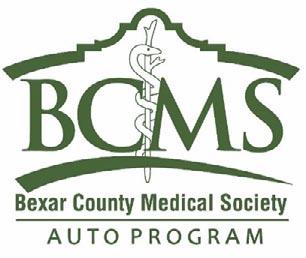

Over the years, we have developed relationships with lenders to save our members even more money. Today we have 5 percent money to five years with approved credit. The rates fluctuate with the market conditions; however, they are always lower than prevailing rates. We also look at the manufacturer’s finance sources for rate specials and help guide you to the best possible deals, as we want our members always to have the lowest rate available.
Travis County Medical Society and Harris County Medical Society noticed our Auto Program in the past few years. By agreement, we now offer the service to doctors in both counties. We currently serve more than 20,000 physician members in Texas.
Phil Hornbeak is the Auto Program Director for the Bexar County Medical Society. He has been with the Society for 19 years.

30 SAN ANTONIO MEDICINE • September 2023
BCMS 170TH ANNIVERSARY
1983 Toyota Camry 2023 Toyota Camry
Searching for “Texas”
By Oliver Johnson, Jr, MD
This was taken around 2016-2017. I was using my Canon 5D Mark III camera at the time. My wife and I were driving on I-10 about an hour south of SA looking for “Texas” photos. I just happened to look to our right and saw this and a couple of other cars left in this farmer’s field. We looked for someone to ask permission, but there was no one around. So … we climbed the barbed wire fence in shorts and sandals, set up my tripod and camera, and took shots of all these beautiful old junker cars. The angle for this one was chosen as the tree in that position looked to me to either be protecting the car, or about to engulf and eat it. Depends how you look at it. I really liked the composition on this one.

Then a pickup truck came over the hill, and the owner demanded to know why we were trespassing on his property. He didn’t seem all that angry or threatening. I quickly apologized, showed him my card and promised we hadn’t disturbed anything. He asked us to leave, which we did, but I already had lots of images. True episode.
Oliver Johnson, Jr, MD, is a retired Anesthesiologist who dedicated 30 years to the medical field. Since 1995, he has chaired the BCMS Physicians Health and Rehabilitation Program. Dr. Johnson’s passion for photography takes him on photo trips around the world where he is surrounded by professional photographers who teach and advise. He currently shoots with a FUJIFILM X-T4 Mirrorless Camera.

SAN ANTONIO MEDICINE Visit us at www.bcms.org 31
Healing The Healers:
Lessons Learned from a Physician Leadership & Wellness Coach
By Nora Vasquez MD, Advanced Certified Physician Coach, CEO & Founder of Renew Your Mind Coaching Program.
As a Board-Certified Internist, I have personally experienced the profound effects of burnout during my training and career journey. It is fascinating to me that when I was going through burnout, I didn't even recognize it at the time. My days were consumed with patient care, managing family responsibilities, and simply trying to keep up with the demands of work and life. I assumed that the challenges in medicine were just an inherent part of the job. I rarely heard my colleagues openly discuss their own struggles, both personal and professional. It simply didn’t occurr to me that there might be a solution to finding a better work-life balance besides just cutting back my work hours.
However, everything changed when I attended a medical conference and met a physician coach who shed light on the real challenges physicians face and the possibility of practicing medicine without sacrificing our well-being. Through this experience, I discovered a supportive community of like-minded, growth-oriented doctors who showed me that I wasn't alone in this journey. With the guidance of a physician coach, I took the first steps towards my path to well-being, and it completely transformed my personal and professional life in ways I couldn't have imagined.
Having overcome burnout and embracing these transformative strategies, I felt a deep desire to share these empowering concepts with my colleagues. I decided to pursue certification and became an Advanced Certified Physician Leadership & Wellness Coach, enabling me to help more medical professionals overcome burnout and genuinely enjoy the lives they have worked so hard to build.
Over the years, I've had the privilege of coaching medical students, residents, fellows, attending physicians and healthcare executives at various stages in their careers. Additionally, I've had the opportunity to collaborate with healthcare leaders to implement leadership and wellness initiatives, thereby transforming medical organizations into spaces that genuinely support our colleagues in meaningful ways. One of the key lessons I've learned is the importance of creating physician-led, safe

NATIONAL SUICIDE PREVENTION 32 SAN ANTONIO MEDICINE • September 2023
spaces where we can openly discuss our unique challenges and work together to find strategies to overcome these obstacles.
While medicine is an honorable calling that many of us chose to pursue to make a positive impact on our patients and communities, our training often overlooked essential aspects that are crucial for our longterm well-being. We were not adequately prepared to recognize and address burnout as an expected occupational phenomenon due to chronic exposure to workplace stress and trauma. Nor were we taught how to establish healthy boundaries or access vital resources like counseling, coaching, mentorship and sponsorship to sustain our well-being. Work-life integration and maintaining physical and emotional wellness were areas that were often overlooked. These are fundamental skills we need to build sustainable and fulfilling careers in medicine.
This lack of preparation has resulted in alarming rates of burnout among healthcare professionals, leading to devastating consequences. National Physician Suicide Awareness Day on September 17th serves as a stark reminder of the crisis, with approximately 400 physicians taking their own lives each year. This is devastating and we must do all we can to change this. Furthermore, 2022 statistics indicate that around 100,000 physicians have left the medical field. A Forbes magazine survey estimates that 47 percent of U.S. healthcare workers are planning to leave their positions by 2025. Despite these distressing statistics, there is hope.
Many institutions across the U.S. have responded to the burnout crisis by implementing innovative solutions at both the organizational and individual levels. To address and prevent burnout at the organizational level, it is crucial to foster a culture of wellness and mitigate the drivers of burnout by streamlining work-flow practices. We must also reduce administrative and clerical burdens and improve the efficiency of electronic health records. Moreover, it is important that organizational leadership teams continue to prioritize, invest and commit to alleviating the systemic drivers of burnout so that we can meet the challenges before us.
To support physicians in leading these transformational efforts in medicine, educational institutions like Stanford, Harvard, Mayo and the Cleveland Clinic have introduced robust coaching programs and wellness initiatives. Such initiatives are essential because many physicians lack formal leadership training and frequently face significant challenges in effectively leading their teams in today's complex healthcare environment. I firmly believe that when healthcare professionals are adequately supported at both the institutional and individual levels, they can more effectively inspire and lead their medical teams to deliver healthcare at the highest levels.
In October of 2021, I developed and led the first-ever virtual Physician Leadership and Wellness Coaching program for the Bexar County Medical Society with support from the Texas Medical Association Foundation Grant. This program aimed to address the pressing challenges faced by
physician members, providing them with a supportive online space and encouraging community. During these coaching sessions we talked about our challenges while normalizing and acknowledging our common human experience. Healing happens in community. This is so important in restoring a sense of meaning and enjoyment in the daily medical practice of many participating physicians.
Many of the topics discussed addressed critical issues related to leadership, work and home life integration as well as insights on how to better manage the daily stressors of practicing medicine. Many of the physicians who participated enjoyed discussing a variety of topics, including:
• How To Overcome Burnout and Thrive
• Time Management for Busy Healthcare Professionals
• Processing Grief: Emotional Healing for Healthcare Professionals
• How To Overcome Perfectionism Pitfalls
• How To Lead Your Medical Teams Effectively
• Efficient Charting Tips to Streamline Your Clinical Workflow
The results of the coaching program were remarkable, as it successfully empowered hundreds of physicians with evidence-based coaching strategies to effectively mitigate burnout, improve overall wellness, and cultivate essential leadership skills. The overwhelmingly positive response and impact of the program prompted us to expand its reach further.
In response to the program's success, the BCMS established the Physician Wellness ad hoc committee. This committee is dedicated to providing additional valuable resources and programming, both virtually and in person, to further support the well-being and growth of physicians. The collective efforts of these initiatives have fostered a culture of wellness that values and prioritizes the well-being and professional development of physicians.
On behalf of the BCMS, I invite you to join and participate in the Physician Leadership & Wellness Coaching Program CME webinars and BCMS events. If you have ideas and topics of interest that you would like to see included, please contact us at cms@bcms.org. You can find more information by signing up for our calendar of events at the BCMS website found at www.bcms.org.
Nora Vasquez, MD, is a Certified Physician Coach and a Board-Certified Internal Medicine Physician with over a decade of experience. She developed the Physician Leadership and Wellness Coaching Webinar Series for BCMS physician members to empower physicians with evidenced-based coaching strategies to mitigate burnout and enhance physician well-being. You can learn more about Dr. Nora Vasquez at www.renewyourmindmd.com or email her at renewyourmindmd@gmail.com. Dr. Vasquez is an active member of the Bexar County Medical Society and Texas Medical Association.

NATIONAL SUICIDE PREVENTION Visit us at www.bcms.org 33
BCMS Physician Wellness Resources
By Monica Jones, BCMS COO
Physician Support Line: 1-888-409-0141
The Bexar County Medical Society is committed to helping our members find personal balance and improve general well-being
BCMS Physician Wellness Program
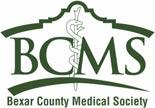
Resources and services provided to help BCMS members maintain a healthy and well-balanced lifestyle through confidential counseling, educational resources, local events, webinars and more.
BCMS Find a Doc
Utilize our free Find a Doc service when looking for a new physician. Our members can be found by the specified tabs provided to narrow down your preferred physician. www.bcms.org/findadoc3.php
Free CME Wellness Coaching Webinars & Events
Dr. Vasquez is an Internal Medicine Doctor and Advanced Certified Physician Coach, helping physicians and healthcare professionals overcome burnout so that they can lead with joy and confidence while creating a more harmonious work-life balance that is fulfilling! www.renewyourmindmd.com/
Physician Support Line
1-888-409-0141 Psychiatrists are available to help physicians and medical students navigate the balance of a personal and professional life. Free, confidential and anonymous. No appointment necessary. Call for any issue, not just a crisis.

LifeBridge
A BCMS-provided resource for physician members who seek counseling from Texas-licensed professionals, discretely and confidentially through BetterHelp. Free 30 days counseling. www.betterhelp.com/bcms/

Physician Health & Rehabilitation Program
BCMS program to assist in advocacy and aid in the recovery success of the impaired physician. Confidential advocacy group of physicians that identify and facilitate recovery success for physicians with substance use disorder (Alcohol and/or Drugs) and depression. www.bcms.org/phr.php
34 SAN ANTONIO MEDICINE • September 2023 NATIONAL SUICIDE PREVENTION
Partnering Organizations Resources
Wellness First
TMA has contracted with Anticipate Joy to provide confidential, online counseling services to physicians licensed in Texas and their immediate family. You can choose from a diverse network of therapists to address work stress, anxiety and depression, relationship issues and more. Cost is $25 per session.
Education & Resources

Travis County Medical Society (TCMS) provides professional education and resources through their Physician Wellness Program, where you can find articles, video/audio, websites and books to use at any time.



Physician Coach Support

Free Confidential Physician-to-Physician support line. A group of volunteer physicians using their own personal development skills and life coaching certifications to support other physicians.
Safe Harbor Counseling Program





Confidential physician counseling program available to TMLT policyholders throughout Texas. The Safe Harbor program was created to help clear the roadblocks many physicians face when considering therapy. It offers a way for physicians to access counseling without the fear that their employer, practice partners or medical board will know they’ve accessed it.

Physician Burnout & Wellness CME Course

Get a better understanding of physician burnout and how it can be prevented with these educational activities. Gain insights on how you can redesign your practice to reduce stress and promote well-being. Receive Continuing Medical Education (CME) credits.
Measuring and Addressing Physician Burnout
The most recent study by the American Medical Association (AMA) shows how the COVID-19 pandemic magnified long-standing issues that have accelerated the U.S. physician burnout rate. At the end of 2021, nearly 63 percent of physicians reported symptoms of burnout, up from 38 percent in 2020. Research shows that large scale change is needed to address the physician burnout crisis.

STRAC Resiliency: Caring for Caring

The STRAC Pandemic Medical Operations Workgroup and Resiliency Workgroup has created this resource page for YOU, as the first responder or frontline healthcare worker. We strongly encourage you to take advantage of the vast resources that are made available here for all of us who care for others in crisis.

Visit us at www.bcms.org 35 NATIONAL SUICIDE PREVENTION
Monica Jones is the Chief Operating Offer for the Bexar County Medical Society. She has been with the Society for 2 years.
University Health Women’s and Children’s Hospital: Meeting The Unique Needs of Women, Newborns and Children
By Elizabeth Allen, Director of External Communications, University Health
It’s a year of landmarks and momentum in medicine for San Antonio and South Texas — the 170th anniversary of the Bexar County Medical Society, the 105th anniversary of University Health, the opening of the new Women’s & Children’s Hospital at University Health, and much more growth in the medical community.
If the past and the future constantly intersect in the present, now is an auspicious present indeed, with the opening of University Health’s new 12-story, 300-bed Women’s & Children’s Hospital in August to provide state-of-the-art specialized care for women, babies and children.
The history of University Health dates back to 1917, when the 4story Robert B. Green Hospital downtown officially opened its doors. It was described in the newspaper as “One of the best and most modern institutions of its kind in the southwest” and was funded by both Bexar County and the City of San Antonio at a cost of $250,000.
Then in 1968, we opened the Bexar County Hospital, in partnership
with the University of Texas’ new medical school — both rising from the pastures of the newly formed South Texas Medical Center. Now University Health has two hospitals on its Medical Center campus, plus 30 outpatient specialty and family medicine locations across the community.
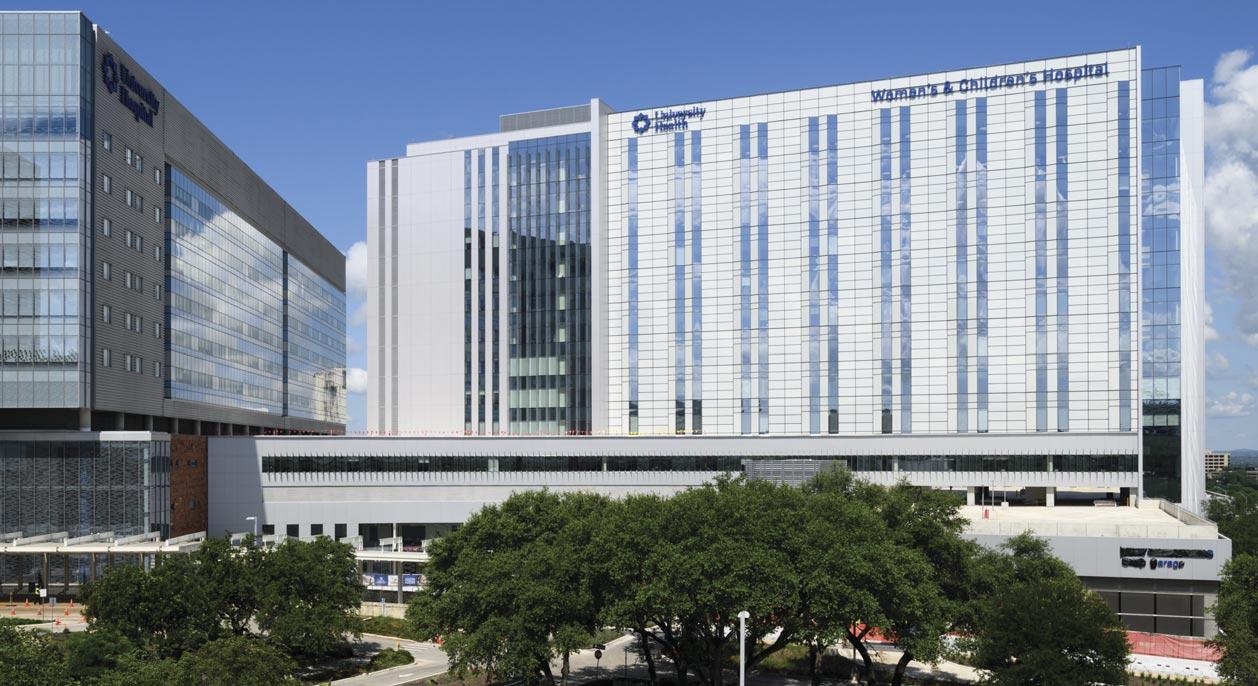
Thanks to our long-standing academic research and teaching partnership with UT Health San Antonio, our teams are driving innovation and discovery, and training the next generation of healthcare providers.
Everything is growing — the local population, the need for medical care and the commitment to our mission of improving the good health of the community. That mission has grown far beyond the original hospital as University Health takes on a larger public health role addressing the critical needs of access, equity and social determinants of health.
Our new Institute for Public Health is building partnerships to address the leading drivers of health and break down barriers to healthcare access. And on the horizon, two new community hospital campuses
36 SAN ANTONIO MEDICINE • September 2023 SAN ANTONIO MEDICINE
will soon break ground. The University Health Palo Alto Hospital campus is directly across of Texas A&M University-San Antonio on the South Side, and the Retama Hospital campus is on the North East Side, near Loop 1604 and I-35.
These community hospitals will allow people to be served close to home on routine procedures like low-risk births and hip replacements without having to travel to the medical center. As part of a “hub and spoke” strategy, these hospitals will help ensure University Hospital and the Women’s & Children’s Hospital are always available to accept patients needing the highest levels of care, such as Level I trauma and burn services, high-risk pregnancies, comprehensive stroke care and organ transplantation.
In addition, last year University Health signed an affiliation agreement with Texas A&M University-San Antonio and Texas A&M University Health Science Center. The synergies of location and mission create a foundation for expanding health services and healthcare training in Bexar County and South Texas.
And the new Women’s & Children’s Hospital at the University Health Medical Center Campus raises maternal, infant and pediatric care to a new level in the region. The hospital, on University Health’s main campus adjacent to University Hospital, will be a place where women, children and their families are surrounded with all of the experts and technologies needed to provide the highest level of compassionate care.
As the only hospital in the region dedicated exclusively to the unique needs of women, newborns and children with complex illnesses and injuries, it will be the new home for University Health’s Maternity Center and Neonatal Intensive Care Units, both classified as Level IV, the highest designation in Texas. These facilities include:
• The Harvey E. Najim Children’s Emergency Department
• A new labor and delivery unit equipped to provide advanced care for even the most complex needs of moms and babies
• Comfortable, private rooms for moms and their growing families
• A state-of-the-art NICU with private patient rooms so parents can stay to bond with their babies
• A team that has earned a Baby-Friendly designation, assuring moms have the information, confidence and skills needed to make the best feeding decisions for their newborns
• A Mother’s Place with resources to promote the positive health benefits of breastfeeding, support for breastfeeding moms, and customized nutrition for NICU babies
• A 24/7
Women’s Center for urgent and emergent OB/GYN needs

The hospital features family-size, kid-friendly rooms and amenities for children requiring an inpatient stay, including the Hope Hits Harder Cancer Foundation Child Life Center that will make it a little easier to be a kid in the hospital.
The décor has also been carefully selected to promote a welcoming and calm atmosphere. University Health’s award-winning SaludArte: Art of Healing program is on full display with the theme “in bloom.” Images of flowers, representing healing and growth, bring the elements of nature indoors. The art and special designs promote discovery, hope and regeneration. This is another way that the hospital is going beyond medicine to holistically serve the whole patient and their loved ones.
“It is our hope that patients and their families will feel valued, respected and understood as we guide them through each step of their healthcare journey,” said Irene Sandate, chief nursing officer for University Health Women’s and Children’s Hospital. “University Hospital’s collaboration with UT Health San Antonio means that patients are treated by leading specialists—among the best in the nation—teaming with our passionately dedicated and highly trained staff.”
In addition to the unique care offered at this state-of-the-art facility, the new hospital will be a magnet to attract and retain a top-notch team. “A beautiful space staffed with caring people is the ideal place for healing,” Sandate said.
This is the future of healthcare for women and children. “The women, the babies and the children who come through the doors of this new hospital will have unique needs and challenges. And we will be there to meet them with compassion and kindness,” said University Health president and CEO George B. Hernández, Jr. “We will help families celebrate the birth of their babies. We will also be there during times of uncertainty, fear and grief. We will be attentive to their needs and, above all, helpful in all we do. These are the values we will bring to our work. This is our promise as we do our part to shape the future.”
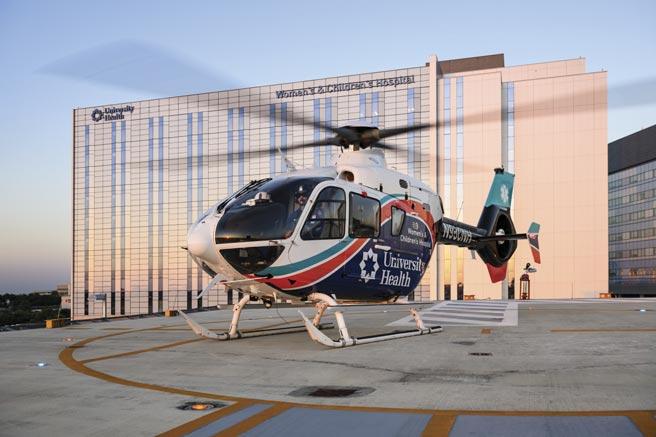
Visit us at www.bcms.org 37 SAN ANTONIO MEDICINE
Elizabeth Allen is the director of External Communications in Corporate Communications and Marketing at University Health.
Cheers, Friends and Rock & Roll
BCMS Networking Social at Hard Rock Café River Walk

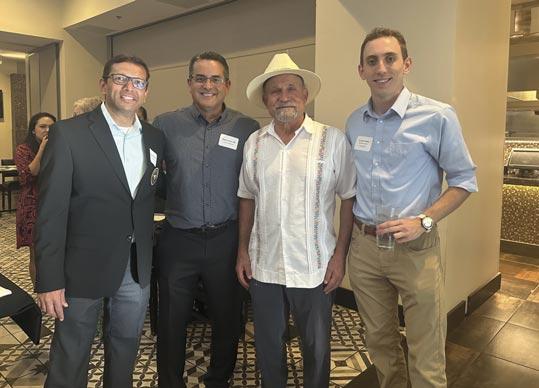
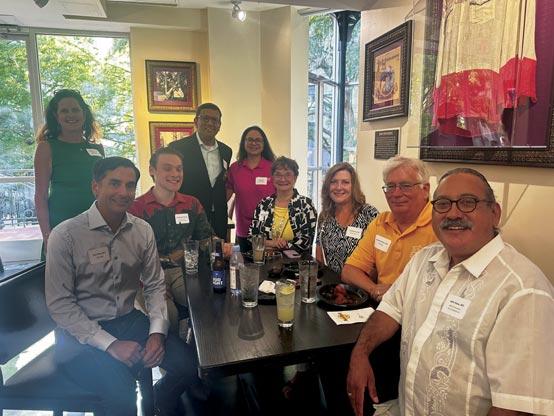
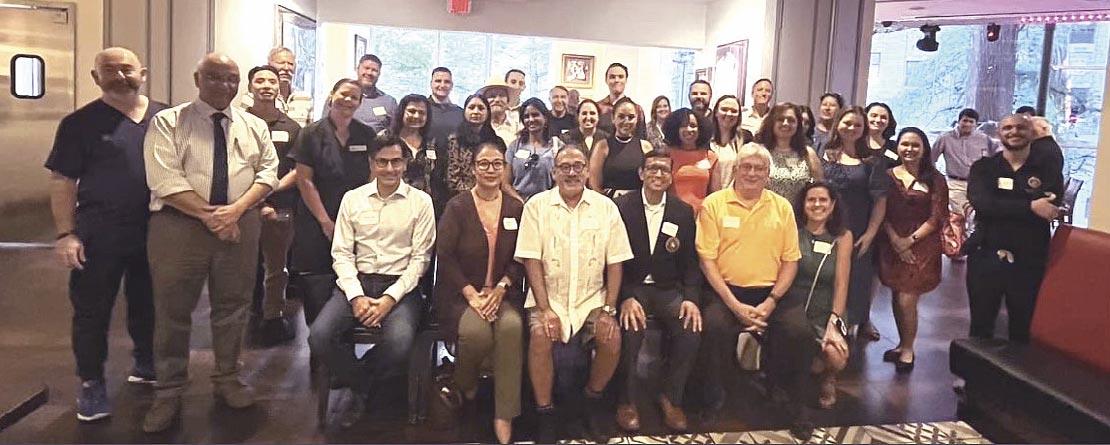
Tuesday, August 8, 2023
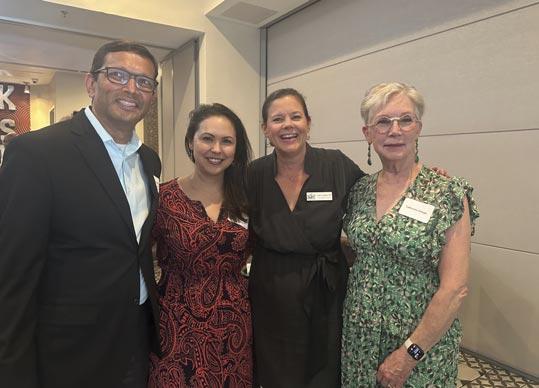
38 SAN ANTONIO MEDICINE • September 2023 BCMS EVENTS HARD ROCK MIXER
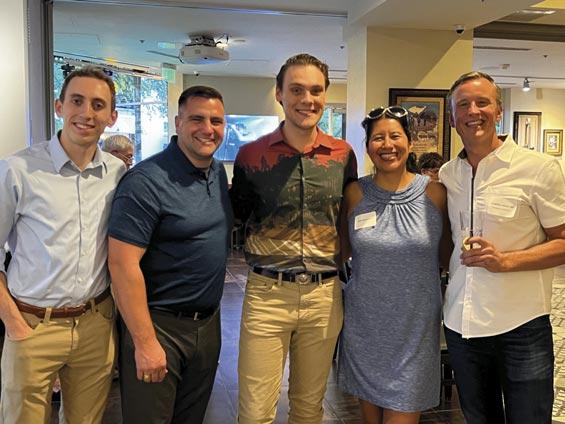

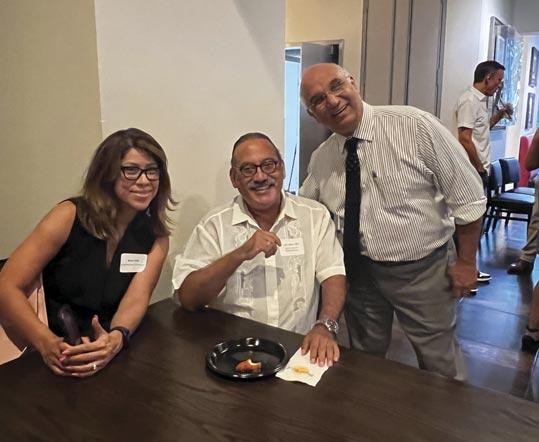
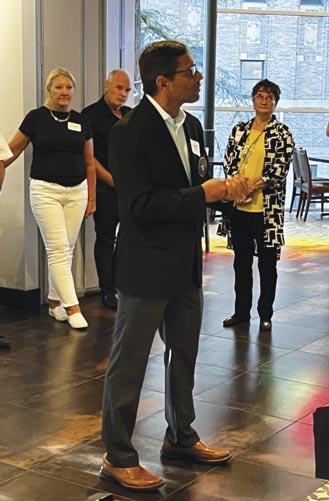
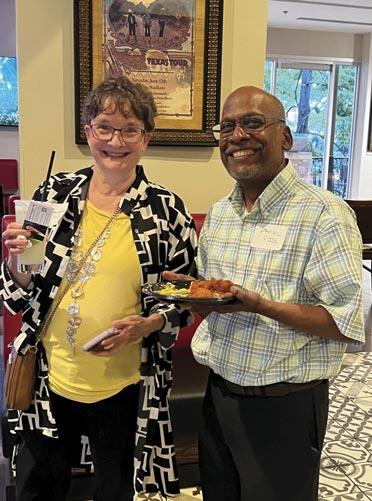
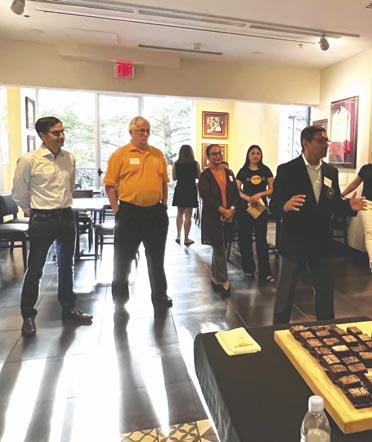

Visit us at www.bcms.org 39 BCMS EVENTS HARD ROCK MIXER
Shop Vendors Who Support BCMS
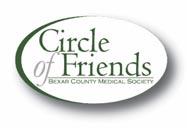
BCMS Vendor Directory
We encourage you to use our supporting vendors whenever you or your practice needs supplies or services.
ACCOUNTING FIRMS
Sol Schwartz & Associates P.C. (HHH Gold Sponsor)

Sol Schwartz & Associates is the premier accounting firm for San Antonio-area medical practices and specializes in helping physicians and their management teams maximize their financial effectiveness.
Jim Rice, CPA 210-384-8000, ext. 112 jprice@ssacpa.com www.ssacpa.com
“Dedicated to working with physicians and physician groups.”
ATTORNEYS
Kreager Mitchell (HHH Gold Sponsor)
At Kreager Mitchell, our healthcare practice works with physicians to offer the best representation possible in providing industry specific solutions. From business transactions to physician contracts, our team can help you in making the right decision for your practice.
Michael L. Kreager 210-283-6227
mkreager@kreagermitchell.com
Bruce M. Mitchell 210-283-6228
bmitchell@kreagermitchell.com www.kreagermitchell.com
“Client-centered legal counsel with integrity and inspired solutions”

ASSET WEALTH MANAGEMENT
BANKING Broadway Bank (HHH Gold Sponsor)
Healthcare banking experts with a private banking team committed to supporting the medical community.
Thomas M. Duran
SVP, Private Banking Team Lead 210-283-6640
TDuran@Broadway.Bank
www.broadwaybank.com

“We’re here for good.”
Synergy FCU Member Services
210-750-8333 info@synergyfcu.org www.synergyfcu.org
“Once a member, always a member. Join today!”
CLINICAL DIAGNOSTICS
Betty Fernandez Director of Operations
210-582-6355
Betty.Fernandez@bexarcv.com
www.BexarCV.com
“Proudly serving the medical community since 1998”
FINANCIAL ADVISORS
Genics Laboratories (HHH Gold Sponsor)

Genics Laboratories offers accurate, comprehensive and reliable results to our partners and patients. Genics Laboratories is committed to continuous research, ensuring our protocols are always at the peak of current technology.
The Bank of San Antonio (HHH Gold Sponsor)

We specialize in insurance and banking products for physician groups and individual physicians. Our local insurance professionals are some of the few agents in the state who specialize in medical malpractice and all lines of insurance for the medical community.
Brandi Vitier
210-807-5581
brandi.vitier@thebankofsa.com www.thebankofsa.com
Amegy Bank of Texas (HH Silver Sponsor)
We believe that any great relationship starts with five core values: Attention, Accountability, Appreciation, Adaptability and Attainability. We work hard and together with our clients to accomplish great things.
Robert Lindley
SVP | Private Banking Team Lead 210-343-4526
Robert.Lindley@amegybank.com
Denise Smith
Vice President | Private Banking
Yulia Leontieva Managing Partner, Physician Liaison
210-503-0003 yulia@genicslabs.com
Kevin Setanyan Managing Partner
210-503-0003 kevin@genicslabs.com
Artyom Vardapetyan Managing Partner
210-503-0003 www.genicslabs.com
“Accurate results in record time.”
Livingston Med Lab (HH Silver Sponsor)
High Complexity Clia/Cola accredited Laboratory providing White Glove Customer Service. We offer a Full Diagnostic Test Menu in the fields of Hematology, Chemistry, Endocrinology, Toxicology, Infectious Disease, & Genetics. Robert Castaneda (CEO) 210-316-1792
Robert@livingstonmedlab.com www.livingstonmedlab.com/home
Oakwell Private Wealth Management (HHHH 10K Platinum Sponsor)

Oakwell Private Wealth Management is an independent financial advisory firm with a proven track record of providing tailored financial planning and wealth management services to those within the medical community.
Brian T. Boswell, CFP®, QKA
Senior Private Wealth Advisor 512-649-8113
SERVICE@OAKWELLPWM.COM
www.oakwellpwm.com
“More Than Just Your Advisor, We're Your Wealth Management Partner”
Elizabeth Olney with Edward Jones (HH Silver Sponsor)
We learn your individual needs so we can develop a strategy to help you achieve your financial goals. Join the nearly 7 million investors who know. Contact me to develop an investment strategy that makes sense for you.
Elizabeth Olney Financial Advisor
210-858-5880
Elizabeth.olney@edwardjones.com
www.edwardjones.com/elizabeth-olney "Making Sense of Investing"
FINANCIAL SERVICES
Aspect Wealth Management (★★★ Gold Sponsor)


We believe wealth is more than money, which is why we improve and simplify the lives of our clients, granting them greater satisfaction, confidence and freedom to achieve more in life.
Michael Clark, President 210-268-1520
mclark@aspectwealth.com www.aspectwealth.com
“Get what you deserve … maximize your Social Security benefit!”
210-343-4502
Denise.C.Smith@amegybank.com
Scott Gonzales
Assistant Vice President | Private Banking
210-343-4494
Scott.Gonzales@amegybank.com www.amegybank.com
“Community banking partnership”
Synergy Federal Credit Union (HH Silver Sponsor)
Looking for low loan rates for mortgages and vehicles? We've got them for you. We provide a full suite of digital and traditional financial products, designed to help Physicians get the banking services they need.
“Trusted Innovative, Accurate, and STAT Medical Diagnostics”
CREDENTIALS VERIFICATION ORGANIZATION
Bexar Credentials Verification, Inc. (HHHH 10K Platinum Sponsor)
Bexar Credentials Verification Inc. provides primary source verification of credentials data that meets The Joint Commission (TJC) and the National Committee for Quality Assurance (NCQA) standards for health care entities.

Aspect Wealth Management (HHH Gold Sponsor)
We believe wealth is more than money, which is why we improve and simplify the lives of our clients, granting them greater satisfaction, confidence and freedom to achieve more in life.
Michael Clark, President 210-268-1520
mclark@aspectwealth.com
www.aspectwealth.com
“Get what you deserve … maximize your Social Security benefit!”
40 SAN ANTONIO MEDICINE • September 2023
GERIATRICS/PRIMARY CARE
norriskouba@uthscsa.edu
https://uthscsa.edu/ Appointments: 210-450-1000
UT Health San Antonio

7979 Wurzbach Road San Antonio, TX 78229
INSURANCE/MEDICAL MALPRACTICE
Conviva Care Center (HHH Gold Sponsor)

Conviva’s value-based care model allows physicians to deliver high quality, personalized care and achieve better outcomes, while feeling free to focus on health equity and patient outcomes.
Kim Gary Senior Physician Recruiter
812-272-9838
KGary4@humana.com www.ConvivaCareers.com
“Fuel Your Passion & Find Your Purpose”
HOSPITALS/ HEALTHCARE FACILITIES
Nexus Neurorecovery Center (HHH Gold Sponsor)

A post-acute rehabilitation facility focusing on brain injuries. Programming provides individual and group physical, occupational, cognitive and speech therapy. We help residents return to lives of productivity and meaning.
Sydney Kerr, Liaison
346-339-2654
skerr@nhsltd.com
Caitlyn Tewksbury ctewksbury@nhsltd.com
Justin Sanderson, CEO 210-854-4732
jsanderson@nhsltd.com
Nexus Neurorecovery Center 227 Lewis St, San Antonio, TX 78212
https://nexushealthsystems.com
“To return patients to lives of productivity and meaning”
HOSPITALS/ HEALTHCARE SERVICES
Provider's Choice Scribe Services (HHH Gold Sponsor)

Our accurate and complete documentation helps our customers focus on what’s most important, their patients. Let us take on the task of documenting your patient encounters, it’s what we do.
Yoceline Aguilar COO
yaguilar@pcscribes.com
915-691-9178
Luis Chapa MD/CEO
210-796-4547
lchapa@pcscribes.com
www.providerschoicess.com/ “An Unparalleled Scribe Experience”
INSURANCE
TMA Insurance Trust (HHHH 10K Platinum Sponsor)
TMA Insurance Trust is a full-service insurance agency offering a full line of products – some with exclusive member discounts and staffed by professional advisors with years of experience. Call today for a complimentary insurance review. It will be our privilege to serve you.

Wendell England Director of Member Benefits
512-370-1776
wendell.england@tmait.org
800-880-8181
www.tmait.org
Texas Medical Liability Trust
(HHHH 10K Platinum Sponsor)
With more than 20,000 healthcare professionals in its care, Texas Medical Liability Trust (TMLT) provides malpractice insurance and related products to physicians. Our purpose is to make a positive impact on the quality of healthcare for patients by educating, protecting, and defending physicians.

Patty Spann
512-425-5932
patty-spann@tmlt.org
www.tmlt.org
Recommended partner of the Bexar County Medical Society
investments.
Jon Wiegand, Principal 210-241-2036
jw@alamocapitaladvisors.com
www.alamocapitaladvisors.com
MEDICAL BILLING AND COLLECTIONS SERVICES
Wave Online (★★★ Gold Sponsor)

Our team of professionals will act as your extended AR office enhancing your revenue through our proprietary metrics and claim management systems. In addition, you keep 100% control of your RCM. Contact us today for a no cost evaluation.
Saranraj (Raj) Venkatesh Vice President – RCM | Sales and Client Relations 726-228-1097
The Bank of San Antonio Insurance Group, Inc. (HHH Gold Sponsor)

We specialize in insurance and banking products for physician groups and individual physicians. Our local insurance professionals are some of the few agents in the state who specialize in medical malpractice and all lines of insurance for the medical community.
Katy Brooks, CIC 210-807-5593
katy.brooks@bosainsurance.com www.thebankofsa.com
“Serving the medical community.”
MedPro Group
(HH Silver Sponsor)
Rated A++ by A.M. Best, MedPro Group has been offering customized insurance, claims and risk solutions to the healthcare community since 1899. Visit MedPro to learn more.
Kirsten Baze, RPLU, ARM AVP Market Manager, SW Division
512-658-0262
Fax: 844-293-6355
saranraj@wavemt.com
https://rcmwave.com/ “Innovation towards Solutions”
Commercial & Medical Credit Services (HH Silver Sponsor)
A bonded and fully insured San Antonio-based collection agency.
Henry Miranda 210-340-9515
hcmiranda@sbcglobal.net www.cmcs-sa.com
“Make us the solution for your account receivables.”
MEDICAL SUPPLIES AND EQUIPMENT
Henry Schein Medical (HH Silver Sponsor)
UT Health San Antonio MD
Anderson Cancer Center (HHH Gold Sponsor)
UT Health provides our region with the most comprehensive care through expert, compassionate providers treating patients in more than 140 medical specialties at locations throughout San Antonio and the Hill Country.
UT Health San Antonio Physicians
Regina Delgado
Business Development Manager
210-450-3713
delgador4@uthscsa.edu
UT Health San Antonio MD
Anderson Mays Cancer Center
Laura Kouba
Business Development Manager
210-265-7662
“We offer BCMS members a free insurance portfolio review.”
Kirsten.Baze@medpro.com www.medpro.com
INVESTMENT ADVISORY
REAL ESTATE
From alcohol pads and bandages to EKGs and ultrasounds, we are the largest worldwide distributor of medical supplies, equipment, vaccines and pharmaceuticals serving office-based practitioners in 20 countries. Recognized as one of the world’s most ethical companies by Ethisphere.
Tom Rosol 210-413-8079 tom.rosol@henryschein.com www.henryschein.com
Humana
(HHH Gold Sponsor)
Humana is a leading health and well-being company focused on making it easy for people to achieve their best health with clinical excellence through coordinated care.
Jon Buss: 512-338-6167
Jbuss1@humana.com
Shamayne Kotfas: 512-338-6103
skotfas@humana.com
www.humana.com
Alamo Capital Advisors LLC (★★★★ 10K Platinum Sponsor)

Alamo Capital Advisors is focused on Sourcing, Capitalizing, and Executing investment and development opportunities for our investment partners and providing thoughtful solutions to our advisory clients. Current projects include new development acquisitions and sales, lease representation and financial (RE)-structuring for existing
“BCMS members receive GPO discounts of 15 to 50 percent.”
continued on page 42
Visit us at www.bcms.org 41
BCMS Vendor Directory
MILITARY
San Antonio Army Medical Recruiting office
(★★Silver Sponsor)
Mission: Recruit highly qualified and motivated healthcare professionals for service in the Army Reserves or Active Duty Army, in support of Soldiers and their families.
1LT Thomas Alexandria
210-328-9022
Alexandria.n.thomas12.mil@army. mil
https://recruiting.army.mil/mrb/ “Service to Country, Army Medicine, Experientia et Progressus”
PRACTICE MANAGEMENT
The Health Cell (HH Silver Sponsor)
“Our Focus is People” Our mission is to support the people who propel the healthcare and bioscience industry in San Antonio. Industry, academia, military, nonprofit, R&D, healthcare delivery, professional services and more!
Kevin Barber President
210-308-7907 (Direct) kbarber@bdo.com
Valerie Rogler Program Coordinator 210-904-5404
Valerie@thehealthcell.org www.thehealthcell.org
“Where San Antonio’s Healthcare Leaders Meet”
San Antonio Medical Group Management Association (SAMGMA) (HH Silver Sponsor)
continued from page 41
RETIREMENT PLANNING
Oakwell Private Wealth Management

(HHHH 10K Platinum Sponsor)
Oakwell Private Wealth Management is an independent financial advisory firm with a proven track record of providing tailored financial planning and wealth management services to those within the medical community.
Brian T. Boswell, CFP®, QKA
Senior Private Wealth Advisor 512-649-8113 SERVICE@OAKWELLPWM.COM
www.oakwellpwm.com
“More Than Just Your Advisor, We're Your Wealth Management Partner”
TRANSCRIPTION SERVICES
Provider's Choice Scribe Services (★★★ Gold Sponsor)

Our accurate and complete documentation helps our customers focus on what’s most important, their patients. Let us take on the task of documenting your patient encounters, it’s what we do.
Yoceline Aguilar COO
yaguilar@pcscribes.com
915-691-9178
Luis Chapa MD/CEO
210-796-4547
lchapa@pcscribes.com
Wave Online (★★★ Gold Sponsor)

Professional Analysis focusing on Low Collections, High Denials Rates. Our Business Intelligence tools will identify Cash Pockets and Cash Leakages. With a 360degree view on your practices’ financials, we can tune your AR for best performance. Contact us today for a no cost evaluation.
Saranraj (Raj) Venkatesh
Vice President – RCM | Sales and Client Relations
726-228-1097
saranraj@wavemt.com
https://rcmwave.com/ “Innovation towards Solutions”
PROFESSIONAL ORGANIZATIONS
Healthcare Leaders of San Antonio (HH Silver Sponsor)
We are dedicated to nurturing business connections and professional relationships, exchanging knowledge to enhance leadership, and creating career opportunities for healthcare and other industry leaders in a supportive community.
David Neathery President
210-797-8412
healthcareleaderssa@gmail.com
Gary Meyn, LFACHE
Vice President
210-912-0120
gmeyn@vestedbb.com
https://healthcareleaderssa.com/ “Come, Learn, Connect!”
SAMGMA is a professional nonprofit association with a mission to provide educational programs and networking opportunities to medical practice managers and support charitable fundraising.
Lindsey Herman Nolan, MHR, CMPE President info4@samgma.org www.samgma.org
REAL ESTATE SERVICES COMMERCIAL
Alamo Capital Advisors LLC

(★★★★ 10K Platinum Sponsor)
Alamo Capital Advisors is focused on Sourcing, Capitalizing, and Executing investment and development opportunities for our investment partners and providing thoughtful solutions to our advisory clients. Current projects include new development acquisitions and sales, lease representation and financial (RE)-structuring for existing investments.
Jon Wiegand Principal 210-241-2036
jw@alamocapitaladvisors.com
www.alamocapitaladvisors.com
STAFFING SERVICES
Favorite Healthcare Staffing (HHHH 10K Platinum Sponsor)

Serving the Texas healthcare community since 1981, Favorite Healthcare Staffing is proud to be the exclusive provider of staffing services for the BCMS. In addition to traditional staffing solutions, Favorite offers a comprehensive range of staffing services to help members improve cost control, increase efficiency and protect their revenue cycle.
Cindy M. Vidrine
Director of Operations- Texas 210-918-8737
cvidrine@favoritestaffing.com
“Favorite Healthcare Staffing offers preferred pricing for BCMS members.”
www.providerschoicess.com/ “An Unparalleled Scribe Experience”
42 SAN ANTONIO MEDICINE • September 2023
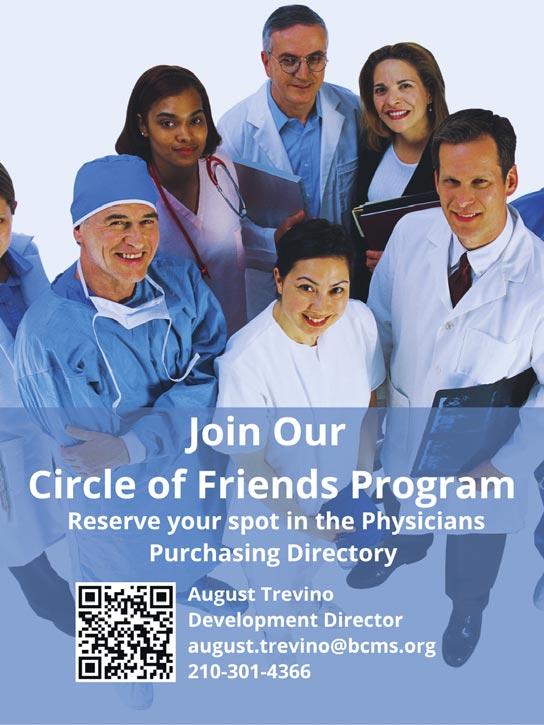

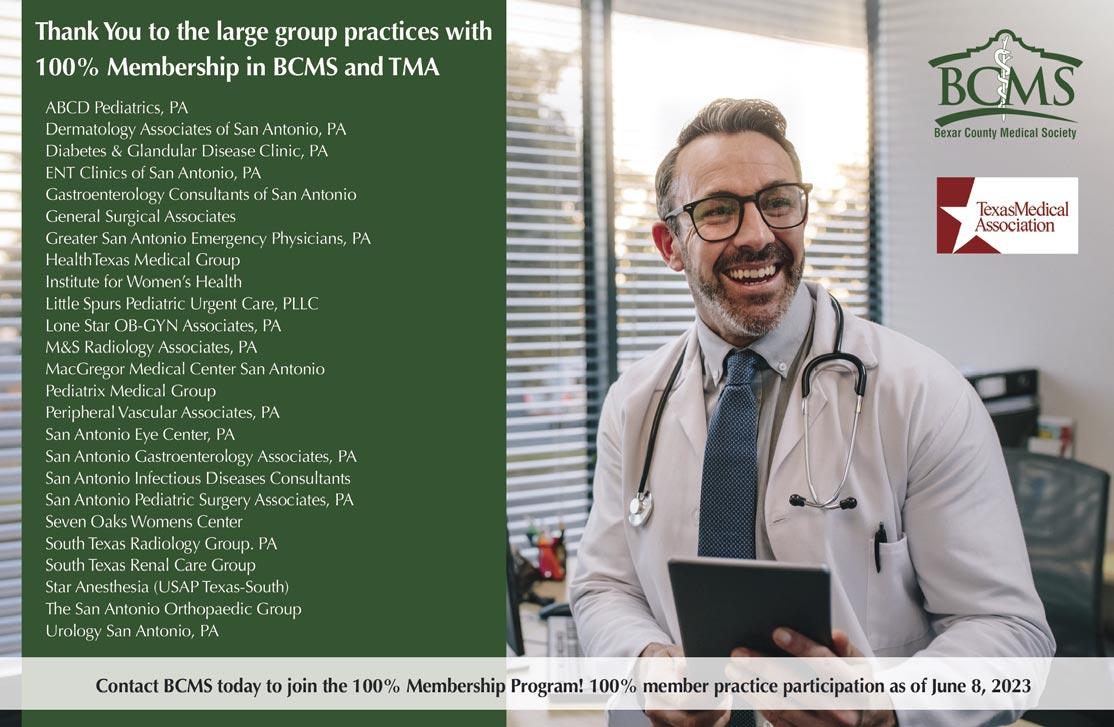
Visit us at www.bcms.org 43
What To Buy





 By Stephen Schutz, MD
By Stephen Schutz, MD
AUTO REVIEW 44 SAN ANTONIO MEDICINE • September 2023
Ford Mustang
Lexus
LX
Chevrolet Corvette
BMW iX
Porsche Taycan
Ford Bronco
I haven’t been able to get press cars recently, so I’m scrambling a bit and decided to write about, “What to buy,” which is a rundown of the cars and trucks that I like in every vehicle class that matters. Hopefully press cars will start re-appearing soon.
Battery Electric Vehicles (BEVs)
Porsche Taycan – the Porsche of BEVs. The Taycan is much heavier than a 911, yet somehow this four-door/four-seat low slung sedan manages to feel like a 911 with electric power. I don’t understand how Porsche did it, but they did. Unfortunately, just average range and a problematic charging infrastructure mean that you’ll use this around town (and be very happy) but take your Escalade on road trips.
BMW iX – the same limitations that apply to the Taycan also apply to the iX SUV. However, the iX will be a much better kid carrier than the Porsche, and it would always be my choice for runs to the grocery store or Costco. Its looks will put some customers off though.
Tesla Model Y – the best-looking BEV you can buy seems to also get cheaper by the day. The interior isn’t as nice as Porsche’s (or BMW’s or Audi’s or Cadillac’s) but who cares when you get access to the national Tesla Supercharger Network. OMG what a game changer that has turned out to be.
Sports Cars
Porsche 911 – celebrating its 60th birthday this year, the 911 is the lion of the jungle in this category. Of course, there are other good sports cars, but the rear-engine German original still rules this roost. I’m biased of course, having bought a new one two years ago after a, no joke, 48-year wait. I still love it.
Chevrolet Corvette – celebrating its 70th birthday this year— amazing that it predated the 911 by exactly 10 years—the Corvette is America’s sports car, and it’s been great for decades. The current iteration is mid-engine, which I don’t like because the Corvette has always been front engine/rear wheel drive, but enthusiasts are buying them like crazy, so I guess that’s ok.
Ford Mustang – as I type this, the Dodge Challenger and Chevrolet Camaro are approaching the end of their lives, but the Mustang has been extended for at least five years. With a V8 option. Thank you, Ford!
Compact Crossovers
Toyota RAV4 – weird styling combined with Toyota quality equals big sales? I guess so, but since most RAV4 buyers like the styling, what do I know. It’s the class sales leader.
Ford Bronco Sport – it’s been called an Escape with an OtterBox, but I still like it. And the new ‘70s colors combined with the white roof and wheels (also very seventies) only make me like it better. Buy this instead of the RAV4.
Volkswagen ID.4 – VW’s BEV compact crossover is proving to be cute and popular (that combination always worked in high school, didn’t it?). All of the BEV caveats noted above apply to the ID.4.
Family Trucksters
Toyota Highlander – unimpeachable quality, three rows of seats, a nice interior, affordability and decent fuel economy are the pillars that support robust sales of this terrific family hauler. So what if it’s boring to drive.
Chevrolet Tahoe – it’s a lot bigger than the Highlander, and the independent rear suspension (enabling a lower rear floor) and longer wheelbase (providing more second- and third-row legroom) that accompany the latest generation are big pluses. These SUVs are hard to beat if you’ve got kids.
Volkswagen Atlas – I was leaning toward awarding the third spot on this list to the popular Hyundai Palisade/Kia Telluride twins, but unnerving rumors about powertrain quality problems mean that the Atlas gets the nod. For 2024, VW has improved the quality of the Atlas’ interior materials—a negative in the gen 1 Atlas—and upped the ownership experience. The tech may be a little too “touchscreeny,” but this is a family vehicle I could own.
Full Size Luxury SUVs
BMW X7 – much more than just a 20% bigger X5, the X7 brings luxury touches that seem to have been borrowed from BMW subsidiary Rolls Royce to the premium SUV game. It’s not an “ultimate driving machine” by any means, but it’s a great way to take your daughter to soccer practice.
Range Rover – the latest generation of the world’s favorite luxury SUV has an even more lux interior, the best BMW V8 and transmission money can buy, and an intoxicatingly beautiful exterior design. It costs a lot more than the last one did, but OMG what an SUV.
Lexus LX 600 – how can a mildly re-worked LX 570 with a Toyota Tundra engine and transmission make this list? Because it has a luxurious interior, will never break down, and will hold its value more than any of its competitors. Want to drive the heck out of it for 10 years and then sell it? No problem, people will line up outside of your home wanting to buy it.
As always, call Phil Hornbeak, the Auto Program Manager at BCMS (210-301-4367) for your best deal on any new car or truck brand. Phil can also connect you to preferred financing and lease rates.
Stephen Schutz, MD, is a board-certified gastroenterologist who lived in San Antonio in the 1990s when he was stationed here in the U.S. Air Force. He has been writing auto reviews for San Antonio Medicine magazine since 1995.

AUTO REVIEW Visit us at www.bcms.org 45
11911 IH 10 West San Antonio, TX 78230
Coby Allen 210-696-2232
Audi Dominion 21105 West IH 10 San Antonio, TX 78257
Anthony Garcia 210-581-0512
Northside Chevrolet 9400 San Pedro Ave. San Antonio, TX 78216
Charles Williams 210-912-5087
Chuck Nash Chevrolet Buick GMC 3209 North Interstate 35 San Marcos, TX
William Boyd 210-859-2719
Kahlig Auto Group
Bluebonnet Chrysler Dodge Ram 547 S. Seguin Ave. New Braunfels, TX 78130
Matthew C. Fraser 830-606-3463
Kahlig Auto Group
Northside Ford 12300 San Pedro San Antonio, TX
Marty Martinez 210-477-3472
Kahlig Auto Group
North Park Lexus at Dominion 25131 IH 10 W Dominion San Antonio, TX
James Cole 210-816-6000
Kahlig Auto Group
Northside Honda 9100 San Pedro Ave. San Antonio, TX 78216
Jaime Anteola 210-744-6198
Kahlig Auto Group
14610 IH 10 West San Antonio, TX 78249
Mark Hennigan 832-428-9507

Land Rover San Antonio 13660 IH 10 West San Antonio, TX
Cameron Tang 210-561-4900
North Park Lexus 611 Lockhill Selma San Antonio, TX
Jose Contreras 320-308-8900
North Park Subaru 9807 San Pedro San Antonio, TX 78216
Raymond Rangel 210-308-0200
North Park Lincoln 9207 San Pedro San Antonio, TX
Sandy Small 210-341-8841
Kahlig Auto Group
North Park Subaru at Dominion 21415 IH 10 West San Antonio, TX 78257
Phil Larson 877-356-0476
Mercedes Benz of Boerne 31445 IH 10 West Boerne, TX
James Godkin 830-981-6000
Cavender Toyota 5730 NW Loop 410 San Antonio, TX
Spencer Herrera 210-581-0474
Mercedes Benz of San Antonio 9600 San Pedro San Antonio, TX
Al Cavazos Jr. 210-366-9600
Kahlig Auto Group
North Park Toyota 10703 Southwest Loop 410 San Antonio, TX 78211

Justin Boone 210-635-5000
9455 IH 10 West San Antonio, TX 78230
Douglas Cox 210-764-6945
Kahlig Auto Group
Audi North Park 15670 IH-35 North Selma, TX 78254
Camden Steele 325-374-9897
Call Phil Hornbeak 210-301-4367 or email phil@bcms.org
As of June 1, 2023, our loan rate will be 5.0% for 60 months with approved credit.





















 By Melody Newsom, Chief Executive Officer
By Melody Newsom, Chief Executive Officer





























 By Andrew Ta
By Andrew Ta














 By Phil Hornbeak
By Phil Hornbeak































































 By Stephen Schutz, MD
By Stephen Schutz, MD




